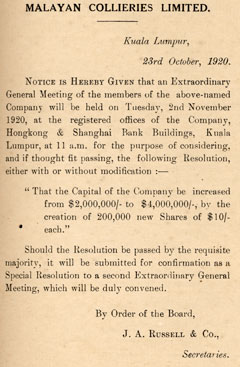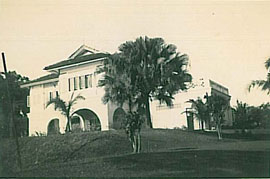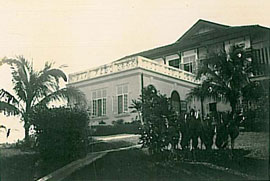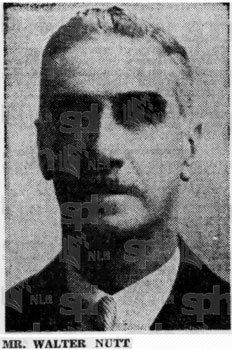
For the descendents of Richard Dearie and his son John Russell
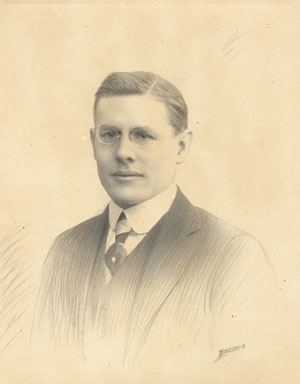
The experience of having very little in his youth may have been the catalyst behind his intense studying and his ability to manage money in his later years. His father’s letters to him in Peckham exhort him to look after his three younger brothers and he seems to have taken this as an instruction which he followed for the rest of his life. It is apparent in the photograph, (centre left), taken in Peckham and sent to his father. Even allowing for the seriousness in which studio portraits of the time were taken, all four boys look particularly sad, and Archie as the eldest is caring for the other three.
His father’s letters refer to his knowledge and love of geography. He also tells him to work hard so that it will easier to find him a job when he returns to K.L. as well as to make sure he does some sport like learning to play cricket.
Archie says in his diary that he went to Alleyn's school, although their archives have no record of him. Since his brothers began their apprenticeships by the age of 14 and 15 it is possible that he was employed in some occupation before he returned to K.L.
Left: Alleyn's in Townley Road, Dulwich. It was established as a boys' school in 1882. The Revd J. H. Smith was headmaster from 1882–1902. Photographed in 2010 by Claire Grey
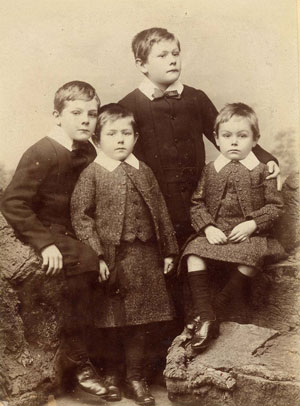
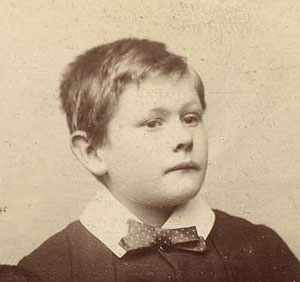
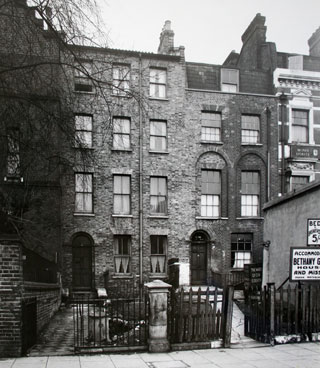
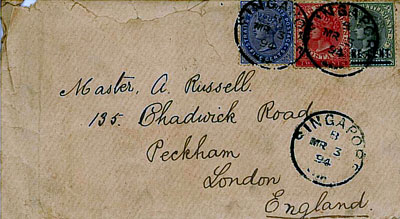
John Archibald Russell, or Archie as he was known, was born on the 11th of November 1882 at 78 Westminster Bridge Road, London. He was the second son of John Russell and his wife Frances. His father worked in London’s Fleet Street as a printer and compositor
A year before, the family had been living in nearby Waterloo Bridge Road, where Archie's older brother George was born, but by 1882 they had moved farther away from the river to the southern end of Westminster Bridge Road.
The road would have been a very busy one full of people and horse drawn trams. At the river's edge were iron foundries, builders' yards and stone and timber wharves. The new railway from Waterloo which crosses the road at the North end had been built 44 years earlier in 1838. Also crossing it was the huge mile long market which ran along The Cut and Marsh roads. Large stores moved in like David Griegs for food, and Groves for clothes.
Lambeth was a theatre district and near the river was Astley's amphitheatre, a circus and menagerie which continued until 1893 when it was replaced by St Thomas Hospital. Charlie Chaplin born in 1889 recalled part of his childhood in the road: “ In mother’s prosperous days we also lived in Westminster Bridge Road. Its atmosphere was gay and friendly with attractive shops and restaurants and music halls.”
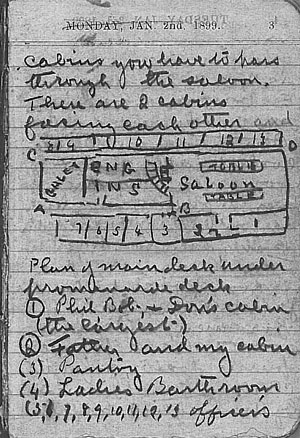
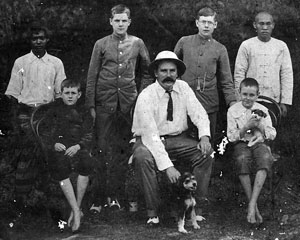
Archie was promoted to assistant at the Straits Trading Company in 1902, in July of that year his father Jack wrote the letter below:
Kuala Lumpur
Selangor
17 July 1902
A. R. Venning, Esq.,
actg British Resident, Selangor
Dear Sir,
I shall be very grateful to receive the favour of your permission for a son of mine, John Archibald Russell, to be examined at the ‘Chinese Secretariat’, Kuala Lumpur, in the Cantonese dialect of the Chinese language, as well as in his knowledge of Chinese written characters.
The Secretary for Chinese affairs, F.M.S., very kindly told me that, given your consent, he would arrange for the examination.
Should you be so good as to grant my application, I shall be very happy to defray any expense that may arise in that connection.
I am, dear Sir,
Yours faithfully,
John Russell
View Westminster Bridge Road in a larger map
The Examination was not held until April 1903. The secretariat for Chinese Affairs sent the report to the Resident's Secretary:
Secretary to Resident
I & Mr. Pountney have examined Mr John Archibald Russell & beg to forward out report herewith.
2. There can be no question that Mr. Archibald Russell has acquired an excellent practical acquaintance with both the written & spoken language of Chinese & that his services, ( whether employed in private or in public business,) will be greatly enhanced in practical value after successfully passing the Examination in question.
Signed G. T. Hare
Extracts from examiners report:
sg/- G. T. Hare A.M. Pountnoy.’
“The board of Examiners is of the opinion that Mr. John Archibald Russell has passed an Examination in Cantonese Colloquial with great credit, and that he has passed in Documentary Chinese with credit.
'Mr. Russell has been studying Chinese ( outside his business hours) for a period of about 2 ¾ years and the examination proves that he must have exercised much self -denial, zeal and perseverance with his studies in order to have acquired such a competent knowledge both of the colloquial and characters in so short a time.
‘The Board of Examination is of the opinion that Mr. Russell’s industry and progress in Chinese reflects great credit upon him and shows how much knowledge may be accomplished locally by an industrious student without residence in China.
John Russell wrote and thanked the Government:
Kuala Lumpur
27 May 1903
The Secretary to the Resident Selangor
Sir,
I have the knowledge of acknowledging your letter No 4047/02, dated 26th May 1903, forwarding for retention by my son, J.A. Russell, the report of the Board of Examiners who recently examined him in the Cantonese language.
2. I beg, on behalf of my son and myself to express our thanks to Government for permitting the Examination; and also that our sense of the deep obligation we are under to the Examiners may be conveyed to those gentlemen.
I have the honour to be,
Sir,
Your obdt. Servant,
J. Russell.
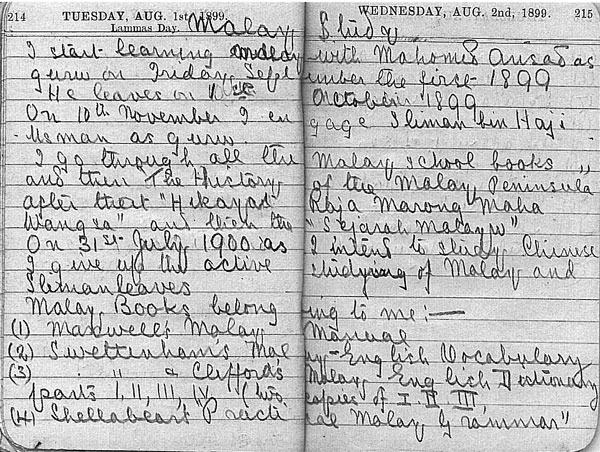
The family lived at the end farthest from the river where there was a mixture of shops, a school, churches and housing. No 78 was between Pearman Street and Tower street, (now Morley Street). On the corner of Tower Street was the Tower Public House and at Number 82 was the Vicarage, occupied by the Reverend James Starey and his wife Mary. Beyond the Vicarage, and adjoining Pearman Street was St Thomas Church. The church and Vicarage were built in 1856 which may be the same age as the two houses next to it. The church was destroyed by enemy action in the 1940s. The pub survived the war but no longer exists. The nearest shops were a newsagent, a chandler, a baker and a tobacconist.
Across the road was Mead Place a neat row of 7, 3 story Georgian houses, and the Yorkshire Society School an impressive looking institution built for the education of boys born in Yorkshire. It became Morley College in 1923, which stood until 1940 when it was destroyed in WW2. It seems to be an improvement on Waterloo Bridge Road but the area still contained some poverty and industry. Further up the road next to the new Christchurch completed 6 years earlier in 1876, was the Oakley Sandpaper factory.
By July 1884 the family had moved out of town into the countryside to Elm Road in New Malden, where Archie's three brothers, Philip, Don and Bob were born.
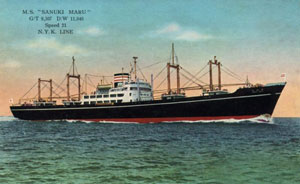
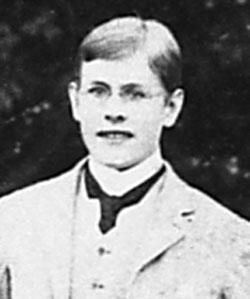
Return to Malaya
In 1899, when Archie was 16, after 6 years with his Aunt and Uncle, his father came to England to take the boys back to Malaya, on the Japanese ship Sanuki Maru. His two Uncles George and Arthur saw them off at London Docks as did two other men who may be local or school friends, Maurice Auger and Bert Richardson.
Archie kept a diary of the voyage, which demonstrated his interest in geography. Each day began with the ship's log showing latitude and longitude and he described the places visited with interest. He also commented on boats and fish. His views on people appear to be open and generous; most of the ships crew are described as nice. His criticism is reserved for a younger son of the Sale family who he feels has no reserve and is boastful. Archie also seems to have little enthusiasm for excesses of religious observation.
Archie kept records of letters he had sent and books he had lent in his diary. An important mentor from Peckham appears to be a Mr. Chalk, a Civil Servant working in the 2nd class return letter office for the GPO, who sent him books and magazines.
Archie was already leaning Malay on the boat and teaching his brother Phil. However the books he read include adventure stories like Treasure Island and the Adventures of Sherlock Holmes.
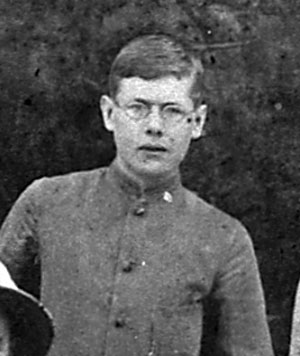
Probation at The Straits Trading Company
In April 1899 the family arrived in Singapore and three days later reached Selangor. They moved to a house on Bluff Road near his father's work place; the Government printing offices and on 6 May, thirteen days after his arrival, he began work for the Straits Trading Company, whose buying office and assay rooms were in Market Street, and where he would work for the next 4 years. This had become a limited company 2 years previously and was engaged in tin mining. It eventually became one of the largest tin smelters in the world. Archie was on probation for three months, being paid 30 Straits dollars a month. Each were each worth 4s. 6d. in 1870 but only 2s.4d. by 1906. If they were worth about 3s each in 1899, then Archie was earning about £4. 10s a month.
He noted at the end of May that his elder brother George was being paid £8 a month as an engineer on board ship. His brother Phil began his apprenticeship in June with no salary at all. By the end of July Archie had passed his probation.
The detailed accounts in his diary began in August, perhaps he had been taught book keeping during his 3 months probation. His salary appears to be exactly what his board cost per month, but he was also receiving $4 a month pocket money. He was lending money to his younger brothers, and apart from this, his only outgoings were stamps, 10 cents spent on rickshaws, fruit and a book on Malay. His accounts reveal that by the end of August he had increased his capital from $4.30c to $6. 87 cents. This sum was carefully transferred to the start of the page of September accounts.
On 1 September, Archie's father hired Mohamed Arisad “as a Guru” to help Archie learn Malay for $5 a month. Mohamed appears to be the father of one of the messengers at the Straits Trading Company. Archie had bought himself some grass slippers for 20 cents.
On 9 October someone called E. Smith, an employee of the S.T.C., attacked Archie, but there are no further details on this.
November’s expenditure included an expensive Christmas present to send to his aunt of 8 yards of satin, which cost $5. He and Phil were given cushion Brookes bicycles by Mr. Sanderson, who had been staying with them. Mohamed had left, so on 1 October he engaged Suleiman bin Haji Usman a 2nd. compositor in his father’s Government printing Office as his new guru. On the 12th he reached his 17th birthday. On 23rd his father Jack interviewed Mr. W.W. Cooke at the S.T.C. about his son's salary. Mr. Cooke suggested a rising rate from 1 Jan, 1900 of $50 for Year one, $75 for year 2 and $100 for year 3. Jack objected to this. Mr. Cooke said that these were the conditions on which he joined his first firm at age 17. Jack replied that Archie had worked for 8 months now on $30 although he was promised it would only be for three months. Mr. Cooke said it's not his decision but up to Singapore, but he would advise them to start on $75. Jack then wrote to Mr. Alexander proposing $75 in year one, $100 in Year 2 and $125 in year three, and sent the letters to Mr. Cooke to read and forward to Mr. Alexander in Singapore.
In December Archie noted that E. Smith who had attacked him has left the S.T.C. His superior Mr. Cooke received the reply from Singapore saying Archie could start on $60 for one year from the start of December and then reconsider the agreement. This was accepted. He continued to pay Suleiman and was still using rickshaws despite having his new bicycle. Over Christmas Mr. Paxon stayed with them and gave each of the brothers some money including $10 to Archie. Mr. Paxon also tooks some photographs of the family. Throughout this time Archie had written to Mr. Chalk in Peckham who had sent him books, and reviews.
In 2009, the relative worth of £4 10s 0d from 1899 is:
£376.00 using the retail price index £461.00 using the GDP deflator £2,020.00 using the average earnings £2,290.00 using the per capita GDP £3,470.00 using the share of GDP
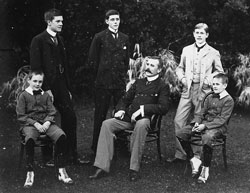
In 2009, the relative worth of £8 0s 0d from 1899 is:
£668.00 using the retail price index £819.00 using the GDP deflator £3,590.00 using the average earnings £4,070.00 using the per capita GDP £6,170.00 using the share of GDP
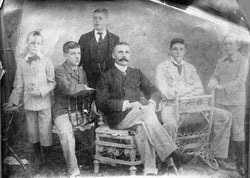
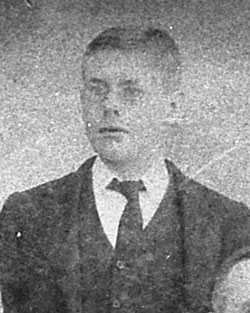
(1) 7 June 1900 celebrating second Anglo-Boer War(1899–1902)
(2) Weld Hill in Kuala Lumpur subsequently renamed Bukit Makahmah.
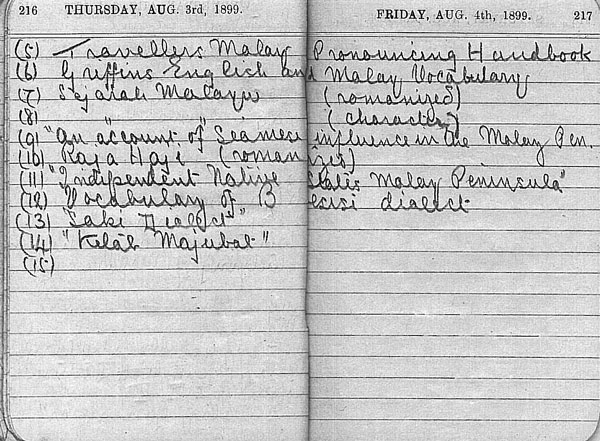
September. His accounts show more spending on firewood and its transport. He bought a 3 stringed Chinese lute from Toh Nam. And also “Yaw Thok kai tai”. On 9th he and George were invited to dine with Mr. W.W. Cook. On 10th he visits Mr. Pountnys with Toh Nam. On 12th Mr. Chalk wrote to say that owing to extra expenses on Bert’s schooling he cannot keep up sending out the magazines etc. His brother Don got Malaria. On 16th he and George went to Tiffin at Mr. Huttenbacks. On the 20th he dined with Jack and Bradberry at their house. On the 27th he started teaching Bob and Don shorthand.
October 1st The “ Kabun” caught a young civet cat, which escaped during the night. Their dog Nancy was shot in the leg by a sanitary Board Dog Destroyer "but runs away and we find her in the gutter and bring her home and bandage up the leg. On the previous day she was bitten by a strange dog." Mr. Chalk sent a Johnstone's 4/6 map of China and The Daily Mail Shilling Commercial map of China and “ asks me to regard them as Christmas Present.” Oct 5th “ I start to learning to read and write Chinese and buy Ink brush stone and paper from TN.” Oct 12th he went to Mr. Henderson an eye specialist to have his eyes tested and was told that the glasses he was wearing (given to him by Mr. Ridges) have been injuring his eyesight, that he was suffering from complicated astigma and that he will send to Rang for some glasses for that disease with $12 gold rims. “ I am to have two kinds of glasses one pair for reading and the other for long distance. In the meanwhile he lent me a pair of nickel plated reading ones until mine arrive". Oct 13th he went to Warren’s circus with Phil and Mr. Fox. 17th His father Jack began learning to ride a bicycle. He bought more stamps. On the night of 21st his otter was stolen during the night, although in later notes he says it escaped. George was seriously ill for 12 days then recovered. Archie wrote to Phil.
In November there are notes on buying firewood and a picture frame. On 12th he had his 18th birthday, his father gave him a set of Siamese tikals (1) made into buttons. On the 15th his father was binding the 1st volume of “With the Flag to Pretoria” (2) Archie wrote to Phil, and Arthur, sent Christmas greetings to his Aunt, and wrote to tell his uncle about the Chinese festival and learning Cantonese. Bob fell off the horizontal bar at the stables and dislocated his elbow. George was 21. Phil was made a ?mason and got his first salary.
In December the Chinese festival took place. Mr. Ridges left for England for 15 months and left all his books for Archie to look after. Phil and Mr. Sanderson stayed for Christmas. Tan Ham Soon a large ore seller to the S.T.C. sent a present of 6 bottles of Whisky and a box of cigars. Archie thanked him but did not accept them. Archie had his usual salary of $60 but had been promised an increase by Mr. C. he decided not to “ say anything” The above is firmly underlined. This is the last substantial entry to his diary.
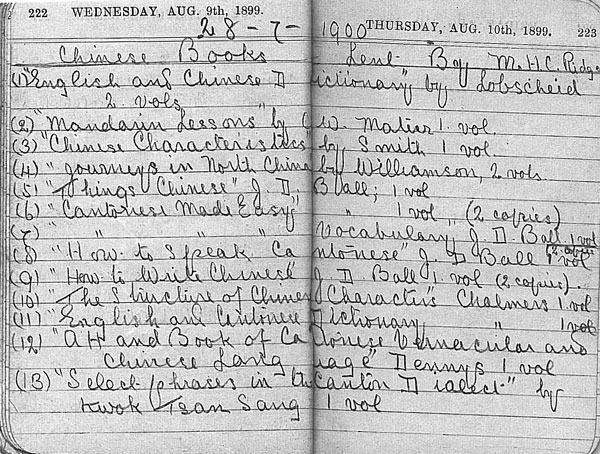
(1) Tikal: a former silver coin and monetary unit of Siam, equal to 100 satang: replaced in 1928 by the baht.
(2)“With the Flag to Pretoria” by Herbert Wrigley Wilson (1866 - 12 July 1940), often known only by his initials H. W. Wilson, was a British journalist and naval historian. Some chapters are on line:
http://www.pinetreeweb.com/wilson-03-mafeking-siege.htm
The Straits Times, 2 July 1903, Page 10
It costs the Government something in the neighbourhood of $5,000 to send a Cadet to Canton for the purpose of his acquiring the Cantonese dialect on the spot, and thus qualifying himself for the Chinese Protectorate or any other department of the Straits Civil Service wherein a knowledge of some Chinese dialect is essential. The theory is that Chinese may not be acquired outside of China, and that a practically thorough knowledge of one dialect is necessary before the student should attempt to learn another. China, as everybody in the East well knows, is literarily speckled with dialects- all of them utterly different so far as the actual words whereof they consist are concerned, but all using the same written language. Therefore it comes about that whereas one man might use the word “which”, as a relative pronoun, and another man would pronounce the word “that”, the two men would use the same ideograph in writing it. When the Cadets is sent to Canton, he has a doleful time of it as a rule, and his practical expatriation for a term of years his early manhood occasionally renders him different to his confreres when he returns to his own sphere. But then it is necessary that somebody in Government service should be able to understand the language of the ubiquitous Chinaman, so learn it somebody must. In this town alone, we have some 20,000 piggishly ignorant Chinese coolies who are always getting themselves into trouble through their lack of knowledge. As Colonel Pennefather explained the other day, in his Report as Inspector General of Police, there is only one available official of Government who understands their dialect - the Hokien- and when one of them has to explain any trouble, he might as well be a clucking dorking hen for all that any European or Native official that he is ever likely to find, is able to understand anent his grievance. From this it may well be seen that it is absolutely necessarily that certain officials should know Chinese. At this point the question arises, why should the Cadet- a necessarily intelligent student, as the fact of his having passed into the service attests- why should he have to be ex patriated in order to pick up Cantonese? The answer to this has long been that he can learn the dialect in no more convenient locality. This is a statement that can now been refuted by facts. Some six weeks ago, Mr. J A Russell a son of Mr. John Russell, the well-known Director of the F MS Government Press at Kuala Lumpur- presented himself before Mr. Hare, the Secretary for Chinese Affairs for F.M.S. and the most eminent Sinologue in the country, to undergo the regular examination for qualifying Cadets in Cantonese. Mr. Russell, who is not a Cadet, and is not yet 21, succeeded in passing the written examination “with credit” and the oral examination “with great credit” - the examination having lasted a week. Now, Mr. Russell has never been East of the Peninsula, and is withal the youngest man- the first youth, one might say- who has passed the examination requisite to qualify Cadets in Chinese. It was unnecessary for him to do so, yet he did it “off his own bat”, so to speak, and is now commencing the study of the Hakka dialect, which is the language almost entirely in vogue among the coolies and others who work in the mines of the Native States. So far as we can gather, Mr. Russell acquired all of the Chinese he knows- written and conversational- in Kuala Lumpur. The knowledge that he there assimilated has more than satisfied the examiner. It would therefore seem plain to the most casual observer of what Mr. J A Russell has been able to accomplish on his own account, under now existing circumstances, and while earning his living at his profession during the day- might also be accomplished by a Cadet holding aspirations in that direction, especially if he had nothing else to do save study, and were to be assisted in his studies by a government whose object it is to produce Cadets with a knowledge of Cantonese, even at the cost of sending them to Canton to learn that dialect.
Notes in Archie's diary for 1901. These are sparse and hard to read.
In January he wrote to tell Phil of his increase in salary, a crocodile is mentioned. He wrote to Mr. Chalk during the year about literature. In August he wrote a letter to his uncle telling him there was no fear of Bubonic plague. In August he ordered more books from Kelly and Walsh including Walton’s essays and Aesop’s fables, and “ Sjit Yam Chi Nam”. ”
The accounts become cursory: in January he appears to be buying wood and cigars for his father. They then skip to April, with costs for more wood, and he mentions buying pills in June from Dr. Williams, and in October for 1600 pieces of firewood. In January he thanked Mr. Chalk for presents, on 5 January he wrote about a trip to ?Semfram on 22nd he mentions £2.20 on a book for C. on Motorcars by Beaumont. Mr. Chalk thanks him when he receives them in a letter in March.
Archie’s Diary for 1900
In January Archie’s salary had doubled to $60, but all of it was going on his board. His outgoings were still stamps, rickshaws and Suleiman.
By February the $60 and $30 gratuity means that $90 was going on board. On 28 February the State auditor Mr. C. C. Trotter acting for Mr. D. G. Campbell the Government Secretary offered him a job as inspector of accounts for Selangor. The salary started at $50 a month, with double salary available when travelling up to a maximum of $100 but he said he was not interested. He wrote to his brother George about the offer in March.
On 2 March he went to stay with Mr. Paxon in Kuala Kulow. The fare was $4.70c. On the 5th O ‘Hara joined the S.T.C. On March 8th Archie asked Mr. Cooke his manager at S.T.C. if he could “ run the cash”. Mr. Cooke said he will think about it. On the 6th he bought another Malay Book for $2.50c
April’s accounts reveal the stamps he was buying were for an album; he had also bought some coins for 20c. He had also spent $2 that month on a Malay newspaper. Mr J. J. Bradbury joined S.T.C. as cashier for a salary of $150 a month and A. Jack became the bookkeeper. Mr. J.J. Bradbury is an Alleyns’ boy “ I acknowledge having come from there”.
On 1 May he ordered through Suleiman a Penang newspaper in Malay. called the Lengkougan Bulan. On the 17th he received the first number on the Crescent Moon from Penang. Archie had also bought some firewood and hired a bullock cart to take the wood from Klang to K.L.
In 7 June Pretoria Day was celebrated. His brother George arrived home, to begin work as the assistant manager for the Federated Engineering Company on a salary of $170 a month. This may be the first time he had seen him in 6 years. On 23 June there was a heavy thunderstorm and a casuarinas tree 30 yards from the house was struck by lightening and splintered up the stem. Phil and Don were outside and had an electric shock. On the 28th he went to the races and lost $5. It is interesting to note that despite being very careful about his accounts, at the age of 17 he is prepared to make bet and take a risk.
In July he bought a flying lemur which died three days later and he gave it to the museum, which agreed to stuff anything for him in return. He wrote a description of it and sent it in a letter to his cousin Katie. On 5 July he saw Dr Williams and started a new treatment. It is not known what it was for. He and Phil caught a deer in the grounds of the Plymouth Brethren’s church and found out it belonged to Mr. C.C. Thompson and had to give it back. He bought a $10 ticket to a raffle and Mr. Robson lent him “Malay Magic”. On the 16th after buying some “bathing drawers”, he started to learn to swim in the pond at the foot of Welds Hill. (2) On 20 July there were “ rumours as to a Chinese uprising in the F.M.S. and Straits settlements”. On the last day of July he gave up his studies in Malay, parted with Suleiman Bin Haji Usman after learning from him for 8 months and made a summary of his Malay Studies. ( See below) He had hired two gurus and gone through all the Malay school books and the history of Malaya, and also studied different dialects . He was now going to concentrate on Chinese.
American International Tin Corporation
In 1903, Archie joined the newly opened American International Tin Corporation, which shipped tin to the USA. He spent most of his time in Ipoh where he learned more about tin mining. According to his brother Don "Their object was to work on the same lines as the Straits Trading Co. in the purchase of tin ore but for shipment to the States for smelting and refining. They asked “J.A.” to join them as Manager realising that his knowledge of Chinese would be of the greatest assistance in promoting the welfare of the Company. Unfortunately things did not work out as was expected as the Governor in Singapore – Sir Frank Swettenham – in order to protect the smelting industry of the city, imposed an Export duty of 100% on tin ore", and the firm went into liquidation.
"During his short connection with the American Company “J. A. “ had become well known to a number of Chinese tin mine owners who being able to converse with him easily in their own language often brought him mining prospects. He was also, at about this time, appointed by the Courts as Administrator of a Chinese estate of fairly large proportions on the basis of a good monthly fee and commission. He therefore decided to start his own company and in 1904 the firm of J. A. Russell came into being". It appears in directories at Number 10, Old Market Square, in 1904.
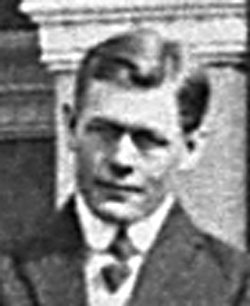
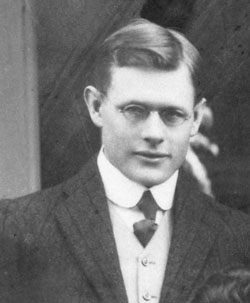

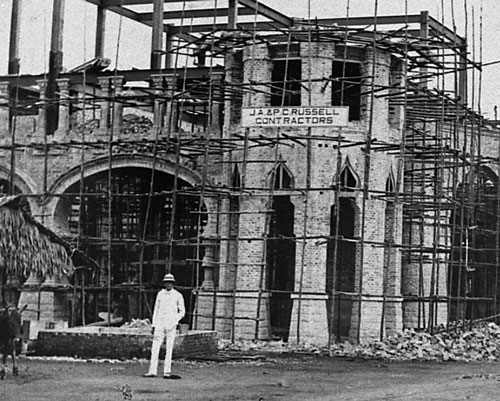

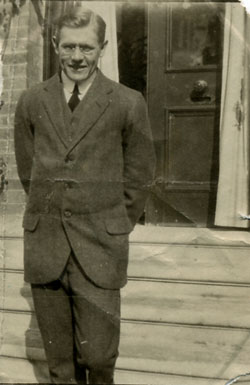
1910-1912 The Rubber Boom.
“The real boom in rubber started in 1909 and good advantage was taken of the situation and with profits made, further property was acquired including a large part of Kampong Malacca", according to Don Russell. The Utan Simpan Rubber Company was started in February. The New Serandah Rubber Company was launched in March. The estate was planted with 754,540 trees. The directors were Messrs. Travers, Dupuis, Frank Harvey, Grey and J. A. Russell, reported the Straits Times on March 14th. In June the Kamasan Rubber Company was launched. “ The directors are Messrs. John Gibson, Russell F. Grey, J A. Russell, W. H. Trotter, and A. K. E. Hampshire” “The Company has been formed to acquire form Mr. J. A. Russell the Kamasan Rubber Estate at Kuala Selangor owned by Mr. W. H. Trotter….718 acres.. The purchase price is £10,000 say $85,700 payable to vendor, Mr. J. A. Russell. .. Secretaries and registered office Russell and Co., 17, Old Market Square K.L.” Archie was also a director.
Due to the boom in rubber, labour was in short supply. It was agreed that Chinese tappers were the best but the most expensive to employ. The Straits Echo in February reported that there was a 5% mortality in the workforce. The Planters Association of Malaya (P.A.M.) met in March and proposed that “a bureau for recruiting Coolies for employment on estates be formed in Southern China” In April John Anderson (1) wrote to the High Commissioner of Hongkong Sir Frederick Luggard, that Mr. J. A. Russell will shortly visit Hong Kong for the purpose of recruiting Chinese labour for work on the plantations in the F.M.S., and asking that the “Hong Kong Government would afford Mr. Russell any facilities and assistance they properly can.” In mid June Archie cabled C. E. Zacharias of the Kit Lang Company at 1 & 3 Old Market Square that he is returning with labourers from Hongkong on the 25th. The papers report him returning via Yokahama on 30 June. The venture did not go smoothly. The South China Morning Post later mentioned the Kit Lang Company in a Court case in 1912, when a boarding house keeper was sued for money owed to him in connection with shipping coolies to the Straits. Wong Hong Chi who traded as Tai Ying Chan, was taking an action against Wing Chang Chan and Lau Tsan Tau. Archie is said to be the director of the Kit Lang Company(2) “ Kit Lang firm was started in order to procure labour for the rubber estates. The manager of the firm was Mr. J. A. Russell. Messrs. Dodwell and Co. in Hong Kong were agents of the Kit Lang firm, whose job was to advance money. Their duties were financial and the Chinese agent was appointed to procure the coolies. “ In August 1910, Messrs. Dodwell received a cable telling them to stop sending inferior coolies, and then they received a further cable telling them not to send any opium smokers. Later in the same month they were asked not to send any coolies at all. Mr. Russell subsequently came back to Hongkong and while he was there he had charge of the arrangements. The supply of coolies was not satisfactory enough in Hong Kong and a branch office had to be established in Hoihow.(3)
In March 1910 Archie received his new 16hp Sunbeam car, whose arrival in Kuala Lumpur was announced in the Straits Times. He was keen to have good cars but later gained the reputation of being a very poor driver, due to several accidents. In the same year his father Jack retired from the Government Printing office.
There is little news of Archie in the press or the archives in 1911. He returned from Telok Anson in Perak in February. He had become interested in coal mines in Canton. ( Malay Mail April 3 1924). It is clear from a letter written in October to the Resident that he was away."To Secretary to Resident Selangor from J. A. Russell & Co. Miners, Contractors and Land Agents 14 &15 Loke Yew Buildings. Kuala Lumpur Selangor. 11th October 1911. “Sir, We have the honour to apply for a 1st class appraisers licence for Mr. D.O. Russell for house property and mining land, and a 2nd class one for agricultural property. At present during the absence of Mr. J. A. Russell a great part of our land agency business has to be hung up until he can return. With regard to Mr. D. O. Russell’s qualifications, he spent five years at the Colorado Government School of Mines from which he graduated with honours, while as to house property he won the Denver city municipal prize for a scheme for town- improvements. He has at the present moment charge of some 77 shops in the towns of Kuala Lumpur, Seremban, Klang, Kajang and Serendah, most of the purchases of which he himself negotiated”
In May Serendah Rubber held its first annual meeting which decided not to refloat the company. “The following directors were re- elected: Dr. Travers, Messrs R. Grey, F.G. Harvey, H.F. Dupuis and J.A. Russell.”
In February 1912 Phil, Archie and Donald were all appointed appraisers for Perak.
In May the New Serandah held its second annual general meeting, which indicated it was “ flourishing” but Archie was criticised by one of the shareholders, Mr. Ferrers: “ He did not bring forward this point in a contentious spirit, but when the Company paid one-tenth of its profits to directors, shareholders ought, surely, to know it had been well spent. As a fact three of the five directors were not in Kuala Lumpur for a great length of time last year. Mr. J. A. Russell was in Hong Kong and Mr. Russell Grey and Dr. Travers were also away. He thought people would wonder how it was these gentlemen, and were being paid for services, which, on the face of it, they were not performing satisfactorily. If a man were appointed a director he should not appoint another man to act for him, while he took a holiday. At the same time he did not suppose the substitution of Mr. Don Russell for Mr. Archie Russell affected the value of the shares. In other respects Mr. Ferrers was thoroughly satisfied with the excellent report.”
Archie became interested in the coal field at Batu Arang and when he visited England he saw the owners and got an option over the property. See right.The Malay Daily Chronicle published extracts from a report of the prospecting at Rawang coal fields in October. The London registered "Rawang F.M.S. Coal Syndicate Ltd"., had engaged Osborne and Chappel, Mining and Consulting Engineers in Ipoh, to undertake the work. In October the directors informed Osborne and Chappel that Mr. J. A. Russell was financially associated with the Company, and was to be given access to the land and plans, to samples of coal for trials and be allowed to represent them at meetings with Government Officials.
In November an analysis of Kamasan Rubber, situated two and half miles from Kuala Selangor, indicated that it had 719 acres, its board of directors. was John Gibson, R. F. Grey, J. A. Russell, W. H. Totter, A. K. E. Hampshire. Secretaries and Registered officers: Boustead Hampshire and Co. Kuala Lumpur. Total valuation £20,860
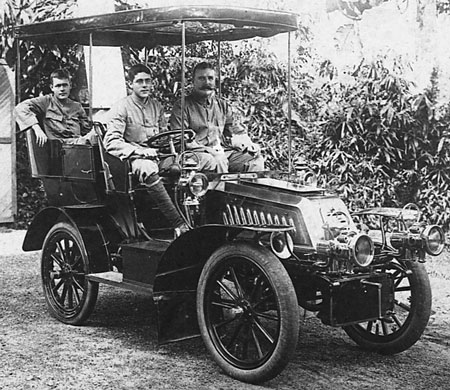
Above: Archie in the back of the car, a 10 h.p. de Dion from about 1903. His brother George driving and their father Jack in the passenger seat.
From The Straits Times, 23 April 1933, Page 11:" I knew the late Mr. J. A. Russell soon after he left school and when he had joined the clerical staff of the Straits Trading Company in Kuala Lumpur. Not long after he had done so, a certain Mr. Lancaster arrived to conduct local proceedings for the International Tin Company, an American concern which proposed to buy up tin in Malaya and ship to ?elaborate smelting works set up in New York for treatment; but Sir Frank Swettenham, the then Governor here, immediately knocked the bottom out of the proposition by enacting legislation whereby the tin won in British Malaya came to be smelted within the country. Now the manager of the American company had meanwhile spent $20,000 on what were then regarded as gorgeous quarters for his forthcoming staff in ?Wiles Hill, Kuala Lumpur and had also acquired a godown site in Brickfields Road, and when the blow fell, it became necessary to appoint somebody to look after the already vested interests in the F.M.S. The choice fell on Mr. J. A. Russell, who had left the Straits Trading Company to join the new concern."
1913 Malayan Collieries
In 1913 Malayan Collieries was floated, and Archie sold the Company the option for 50,000 shares. J. A. Russell and Co. was appointed Secretaries and Agents. By this year J.A. Russell and Co. had a staff of 4 European mining engineers.
In January 1913 Bob Russell left Kuala Lumpur for Burmah. By 10 March 1913 Archie had become the largest European owner of shop houses in three towns: Kuala Lumpur, Seremban and Ipoh.
Archie attended the third annual meeting of New Serendah Rubber Company, which was held on March 31st, the company had 1000 acres under cultivation. Archie retired from the board and was elected as a director.
The press carried the news of the development of the Rawang Coalfields. In May they reveal that they were to be developed by Malayan Collieries Ltd. The press appeared skeptical of the reports in the prospectus, leading Archie to write a letter to the Editor of the Straits Times, setting out the facts, which was published on 28 May. In June the advertisements for Malayan Collieries Shares appeared in the papers listing the capital, directors, bankers etc. “ the company has been formed to acquire the Coalfield at Rawang, which has been proved by thorough prospecting over two years" The Directors were: Alfred Davidson Allan, Robert P. Brash, Foo Choo Choon, Adolf Alois Henggeler, Loke Yew, Tay Chay Yan and John Archibald Russell: "Director, Federated Engineering Company, New Serendah Rubber Company etc." Agents and Secretaries, Messrs. J. A. Russell & Co. Registered Offices, 14 and 15 Loke Buildings." In July Archie applied to renew the prospecting licence at Rawang, and Loke Yew and Lee Kong Lam visited the coal field and underwrote 20,000 shares each.
Archie says later how hard it was to raise the money: "When we started, no one apparently believed in coal except the promoters and the small band of enterprising original subscribers, who hardly included a coal consumer amongst them. The Railway Department had tried the coal, but would give the promoters no guarantee that they would use it. Had the promoters been able to obtain such a promise, the history of this Company would have been different. On the strength of such an assurance money could readily have been raised from the general public, the working capital enlarged and a bigger development scheme than one for an output of 500 tons a day planned. With, however, not only no guarantee as to sales, but indifference and skepticism upon the part of consumers the Company was not justified in providing for an output of more than 500 tons a day. In fact I think we were rather brave even to provide for a daily output of as much; and anyhow, quite apart from all that we had not, nor under the circumstances just described could we possibly get, working capital for a larger equipment than a 500 tons a day installation. " The Straits Echo Mail Edition. 10th October 1917.
In May there was the first meeting of the new Committee of the Selangor Miner’s Association, to which Archie had just been elected president. It was suggested that articles affecting miners from the Government Gazette be translated into Chinese, since 80 per cent of tin was produced in Chinese mines and few Chinese either saw or read the Government Gazette. The Malayan Tin and Rubber Journal explained that Archie's tin mines were run on the Chinese co-operative system, "giving all concerned an interest in the profits."
The Prospecting Licence for Rawang was issued in November with a new condition inserted by the Resident.-“ The Resident shall have the power to insert in any lease of land selected under this licence a condition to the effect that such an area shall be worked to his satisfaction”. The Directors discussed this clause and Don Russell wrote back saying that they did not accept the terms of the licence "The terms of Clause 3 are vague and the powers conferred on the Resident alarming; we should seem by it to be deprived of absolutely any protection or benefits of the Mining Enactment, 1904, and yet be subject to all its pains and penalties." The copy of this letter in the National Archives has pencilled notes in the margin: "Neither M.C. nor the Syndicate was in a position to dictate terms.” Archie and Don signed the 21 year lease for Rawang on 25 November, agreeing to pay $1,282 annual rent on 1282 acres and employ the same number of coolies.
In December a meeting of Malayan Collieries with Archie presiding, and Don present, announced that the shares had been oversubscribed, and the earthworks for the railway line to the coalfield were well in hand. The terms of the prospecting licence were still being disputed. Malayan Collieries' solicitors wrote to the Resident about the new clause saying it :"is far too wide in expression and is likely to embarrass them in working the Mine in the future." and "the Directors desire to consult with the Resident with a view to redrafting of the condition. We should be much obliged if the Resident would be kind enough to grant an appointment, when we and the Directors can attend before him and discuss the matter."
The clause was removed but as Archie said later: "The time, 1913, was one of growing financial depression. When the title was issued it was found that Mr. Broadrick, the then British Resident, had endorsed upon it some fresh clauses, the most inimical of which was that the lease was not subject to renewal at the expiration of its term of 21 years. Messrs Drew and Napier took up the point vigorously with the Resident and succeed in getting the right on our title to one extension of a further period of 21 years. Under our Prospecting Licence we had a definite legal right to a title conveying continuous renewals for as long as we continued to mine the land. Had we taken the matter to Court we must I think have won; but we could not afford to delay the floatation any longer so had perforce to accept a serious diminution of the rights to which we were entitled under our Prospecting Licence." The Malay Mail October 19th 1920.
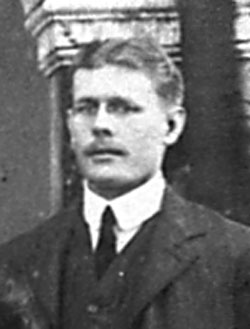
Education
In 1890 when Archie was 8 the family moved to Malaya. In Kuala Lumpur he and his brothers were sent to a small private school run by Mrs. Hurth, the wife of a leading coffee planter.
In 1893 his mother died in a carriage accident and aged 11 he was sent back to London with his three younger brothers to live with his mother’s sister Nell and her husband George Oxer in Peckham. Family history relates that the money his father sent for their care and education was not used as it should have been. Archie could not see the blackboard at school and his Aunt and Uncle did not buy him spectacles.
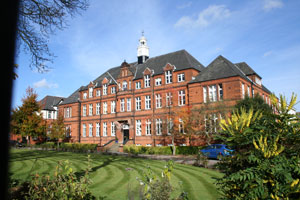

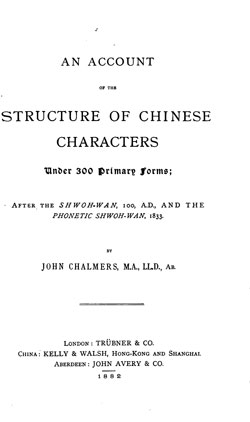
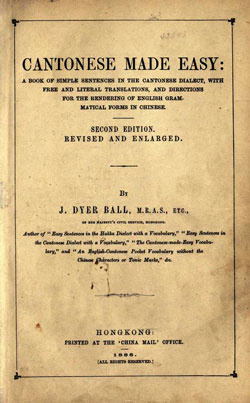

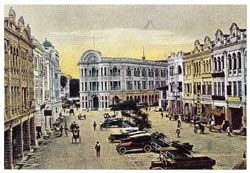
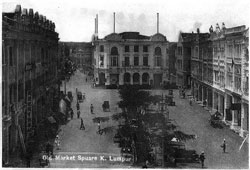
Above: Old Market Square, looking South. The commercial heart of Kuala Lumpur showing the Mercantile Bank, built on the corner of Market Street and Roger Street. It opened in May 1913 with Phil Russell handing over the keys on behalf of Swan and Maclaren.
J. A. Russell Registered Offices were 14 and 15 Loke Buildings in June 1913, The Malay Mail reported Archie moving to larger offices on the first floor of Loke Yew Buildings on May 21, 1914. By September 1914 his address is No. 10 Market Square.
1915 The Effects of War
The January papers reported Archie and a group of officials visiting Batu Arang travelling on a special train on the new 9 mile line linking the coalfields with the Railway System. Archie's fellow director at Malayan Collieries Mr. Henggeler makes Archie his attorney in March to be responsible for all his business affairs.
In March Archie attended the annual Selangor Chamber of Commerce of meeting, which discussed the effects of the war on trade. Exports had recovered but imports had not. The meeting wanted to have the right to nominate its own representatives on the Federal Council.
In May Archie attended a meeting of civil servants and businessmen who agreed that they must contribute in some way to the war effort at home. Mr. Nutt had proposed paying for a convalescent home, and it was suggested that regional committees be set up to encourage monthly subscriptions. Archie spoke at the meeting hoping that the proposal would not clash with Mr. Alma Baker’s proposal already made to the Chinese miners of buying an aeroplane.
In mid May he attended a meeting of the Federal Engineering Co. in Singapore, which discussed the losses made due to the war. He was elected to the board for the next year. Later in May he chaired an extraordinary meeting of the Selangor Miner’s Association, with Mr. Yap Loong Hin who was president of the Chinese Chamber of Commerce. He addressed the meeting in Chinese, explaining the Convalescent home fund, which was agreed to enthusiastically by the 50 or so Chinese present. It was agreed that subscriptions be collected by the Kwong Yik Bank who could remit the money to the Chartered Bank once a week.
In September Archie was re elected director of the Utan Simpan Rubber Company at their fifth annual general meeting. It is one of the few companies; launched during the rubber boom which was still successful. In October, Archie presided over the second annual meeting of Malayan Collieries. They were producing 60 tons of coal a day and expected to pass the development stage in March and be producing 500 tons day in a year’s time. They already had more orders on their books than they could cope with. Two of the largest mines in the country were now run on Rawang Coal. Archie congratulated Mr. McCall, the mine manager for turning " a patch of jungle, miles from anywhere, into a modern colliery". All the machinery now set up "was transported through the jungle to our mine over our private road, and a great part of it at a time of heavy rains". The Railway to the mine had opened for traffic on 1 September, and the Collieries own sidings in November.
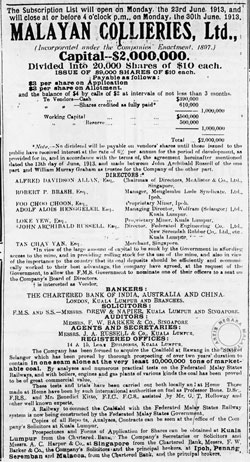
The Straits Times, 18 July 1916, Page 6
"MALAYAN COLLIERIES.
On the invitation of the Chairman (Mr. J A Russell) and Directors of Malayan Collieries, Ltd., between fifty and sixty members of the F.M.S. Chamber of Mines and friends visited the collieries at Batu Arang on Sunday.
A special train left Kuala Lumpur a 8.25 a.m. and arrived at Batu Arang at 9.25 .The manager and staff at the mine met the train, which was run on to the mine property. Parties were then formed under the European members of the mine staff, who conducted their visitors underground.
On returning to the surface they were conducted round the buildings, machine shops, power house, etc., returning to the train at 11.45 am. Breakfast and refreshments were provided on journey, the party arriving back at Kuala Lumpur at about 1pm"
1916 Labour Shortages.
On 3 January Archie sent his apologies to the meeting of the F.M.S. Chamber of Mines. Because of a rise in the price of tin, Malayan Collieries were finding it hard to keep their Chinese underground miners who preferred to work unsupervised in the tin mines. On 14 March Archie and his mine manager, Mr. McCall had a meeting with the Resident to ask the Government if they can facilitate obtaining coal miners from India. At some point during the year Archie visited Japan to investigate Japanese labour , while Mr. McCall went to India. Archie's visit resulted in finding new underground workers. Also in March he presided over the meeting of the Kamasan Rubber Company, where he was re elected as director. In late March although he did not attend the meeting he was nominated and elected as a member for Selangor to the F.M.S. Chamber of Mines. In April he presided over the annual general meeting of the Selangor Miner's Association, where he was elected temporary vice president and elected a representative to the Council of the F.M.S. Chamber of Mines.
In July he was absent from the F.M.S. Chamber of Mines proceedings but sent A. H. Flowerdew as his substitute. At the end of the meeting, after message of congratulations had been read that had been sent to Admiral Jellicoe over the victory at Jutland, the meeting was told that Mr. J. A. Russell invited them to visit Malayan collieries on July 15th. The visit was reported in the papers a few days later. ( See right)
In August he was reported to be building a cinema in Ipoh.(See right)
On 15 August a report from Malayan Collieries was published, which described how the company’s sidings were completed and opened in November 1915. They hoped for an extension of the public telephone system to the mine. There has been trouble with mine labour and Archie while in Japan has investigated the possibilities of Japanese labour. The profits for the year were $99,941.14.
Later in August Malayan Collieries held their third annual general meeting presided over by Archie as its chairman. It was held at their registered office in 8, 10 Loke Yew buildings. In his speech after explaining the balance sheet he congratulated the shareholders for keeping their shares and says they deserve a handsome reward.
In September he sailed to the UK. "It is recognized that for a large production (of coal) we must look to developing an export trade. I myself am leaving within ten days’ time on flying visit to London principally in connection with the distillation, (of coal) experiments to which I have referred, and of finding a market for disposing of the by products to be obtained"
A letter shows that he is applying for 1000 acres of rubber land in Rasa in October. "The applicant is a well known miner and merchant and owns only two acres of agricultural land."
The Straits Times, 12 August 1916, Page 6
Mr J. A. Russell, of Kuala Lumpur, who owns the New Town, Ipoh, is to build a cinema hall in Hume Street, while Eng Khoon is already building one in Brewster Road, near the Birch Bridge.
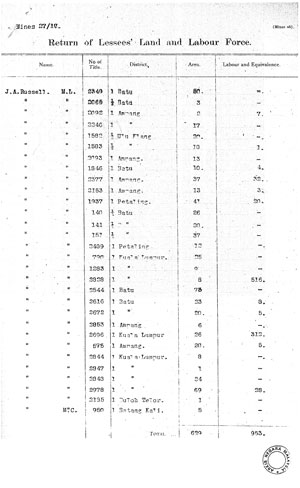
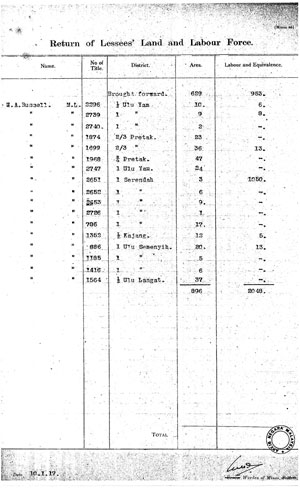
In February a 12 percent dividend was declared for Malayan Collieries, also in February Archie appears to be absent at the seventh annual meeting of New Serendah Rubber although Bob Russell is present. At the meeting Archie was re elected as a director. The company was doing well. In March the F.M.S. Chamber of Mines Council based in Ipoh, one of whose members was J. A. Russell, reported that due to the war the price of imported coal had gone up and that the Malayan Tin Dredging Company was now using Rawang coal, reporting that with some furnace alterations it burnt well and they had arranged future supplies to the end of the year. In May Archie was elected to serve on the committee of the Selangor Miners Association at their annual meeting. There were now 92 members. In May output was restricted at Malayan Collieries due to a “want”, shortage of labour and shortage of essential supplies.
In the spring Archie was in Bangkok on behalf of Eastern Tungsten making arrangements with the British Minister there for the purchase and treatment by the company of Siamese wolfram ores for the British Government.
Archie presided over the Branch Committee of the Chamber of Commerce on 30th January. The committee were still concerned about the effects on workload of the introduction of new legislation when so many men were at the front. The unfair duty on rubber was discussed again, as were the difficulties of importing motor cars and dealing with the customs department.
Due to the desperate shortage of fuel, in February, Arthur Young, High Commissioner, spent $163.90 on sending a telegram to Washington asking for the export of equipment to Malayan Collieries to be allowed in order to increase coal production. The Malayan Collieries’ agent in New York appears to be called Wallis. The cable lists the electrical equipment needed while another cable asks for the 40-pound rails for 4 miles of railway track to be transported from New York.
At the end of February Archie presided over the second A.G.M. of the Branch Committee of the Chamber of Commerce. He summarised the trade position, commenting on both the shortage of labour and the shortage of mining equipment. He gave a speech in which he criticised local Government for not having faith in the local business community and for purchasing goods through Crown Agents and relying on filling posts through colonial civil servants. He felt that local business would lose out if preferences for contracts were always given to “financial rings at Home”.
In March the paper reported that Archie had recently purchased a mine in Kedah and was about to start mining wolfram, and that he had given $5,000 to the North Kedah Red Cross Fund.
In April the annual report of the Selangor Miners association for 1917, regretted the death of Loke Yew, it’s ex president. Tin prices had risen. Archie had been part of a sub committee with Choo Kia Peng, A. A. Henggeler and Lee Man Pun, to revise the rules of the association. Shortage of labour in the mines was acute.
1918 Equipment and labour shortages.
On 7 January The Straits Times reported the farewell dinner for Mr. Nutt held at the Selangor Chamber of Commerce. Archie presided and praised Mr. Nutt’s public service, which Archie proposed to commemorate by presenting a fighting plane himself if the merchants would present the other. It cost him $16,223.37 or £2,250 and was presented on 9 January 1918.
See left, image from "Souvenir of Ninety-Four (Australian and Malayan) Gift Battle-Planes which helped us to Victory, August 4th, 1914 to November 11th, 1918" by C. Alma Baker, from the National Library of Australia
The Selangor Miners Association met on 2 May. They were very concerned by the lack of fuel, and critical of Malayan Collieries. Archie was unable to attend the meeting but wrote a letter saying he was strongly in favour of asking tin miners to work extra shifts or longer hours to increase tin production, and of the Government allowing new areas to be mined. He also asked that if the Government refused a mining application they should give some reason for the refusal.
In May Archie, as a representative of the F.M.S. Chamber of Mines, attended a large meeting at the Planter's Association in Market Street, caused by the crisis in services of the Government Medical Department and called on the British Government to improve the pay and conditions for civil service employees in Malaya to be equal to those in India. It also called for a United Malay Council to represent the whole Peninsula.
In June Archie’s application to mine 9 acres near Sungei Besi was considered at a meeting of the Sanitary Board. In August Malayan Collieries fifth annual report recorded that output has been lost because equipment ordered from Home had been commandeered by the war office, and there was a shortage of labour in the mine. They have continued prospecting, and planned three miles of private railway. Due to their agent Mr. Dyke’s death the work in London had been taken over by Bob Russell; while experiments in briquetting the coal at the Imperial College of Science and Technology had been successful.
In July Mr. D. L. James, of the Royal School of Mines, London, and Mr. J. Barr, B.Sc., Sydney University, and late of Broken Hill, both joined the mining staff of Messrs. J. A. Russell and Co.
On 30 August the first annual meeting of Eastern Tungsten was held at J. A. Russell and Co.’s offices. They were the secretaries for the new company and Archie was also a director with Mr. Henggeler. They had made a profit but the price of tin was now falling. Part of their business was in China. (See left.) On the same day Archie chaired the 5th A.G.M. of Malayan Collieries. He reported that there was no lack of demand but output was stationary due to labour shortages and lack of equipment. There had been complaints of profiteering made against the Company which Archie spent some time refuting. He was re elected as a director. In 1920 he said: " The Government appointed a commission consisting of Mr. Eyre Kenny and Mr. F.A.S. McClelland to investigate these charges. This Commission went through the Company’s books and came to the conclusion that there was no profiteering." Archie speaking at the the seventh annual general meeting reported in the Malay Mail October 19th 1920.
In September a rubber committee was made into a rubber industry protection commission, due to the collapse of the rubber industry, partly caused by the U.S.A. refusing imports and the results of the war. Archie gave evidence to the committee throughout most of September regarding the effects on labour if the output of rubber was to be restricted legally.
On 5 October the second annual meeting of Amalgamated Malay Rubber estates took place. It had to be delayed because Archie as one of the directors was involved in the rubber commission meetings. There was no dividend for 1917-18, although they had made a small profit. The property now had 1,651 acres planted and had harvested 159,416lbs of rubber.
On October 26 J. A. Russell and Co. as secretaries, hosted a meeting of the new Bond’s Company at their registered offices which are still 8-10 Loke Yew Buildings.
Germany agreed to a cease fire on 11 November 1918 and the war ended. On 16 November the Straits Times reported, “ Mr. J. A. Russell has gone to Hong Kong.”
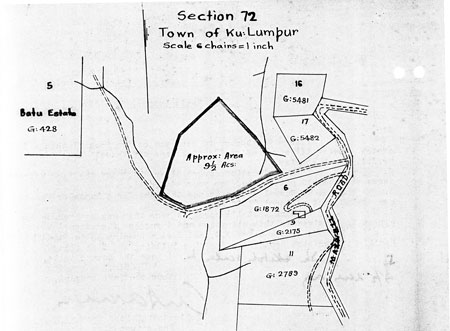
At the end of 1918 Archie went to Hong Kong with Mr. Henggeler. They had decided it was worthwhile spending some money searching mineral deposits in South China. Their first idea was to look for wolfram. Later the government stopped buying wolfram, and they didn’t find any so decided to look for coal instead. They formed a company called China Minerals Ltd. with a capital of 100,000 Hong Kong dollars of which Archie contributed a third, one sixth in his own name and the other one sixth in holdings in Eastern Tungsten Co. Mr. Henggeler contributed a third, partly in holdings in Eastern Tungsten. Eastern Tungsten put in about $40,000 and friends in Hong Kong made up the balance of $20.000. Mr. Beatty, Archie’s manager in Hong Kong put in $10,000. The directors of the company were Archie, Bob Russell, and Mr. Beatty. Loxley and Co. were the agents and secretaries. China Minerals engaged the services of Mr. James Barr, a mining engineer and Bob Russell, who had some experience in mining and spoke a certain amount of Chinese. It was agreed that if China Minerals found coal they would give first refusal to Malayan Collieries. China Minerals had insufficient cash to work the place themselves.
In 1919 Archie returned from China briefly then went to America and from there to England. For 18 months Mr. Barr investigated China for coal, spending about $98.000. Once they had run out of money and entirely lost their capital Mr. Barr was engaged by Russell and Co. for another 8 months, being paid by Loxley and Co. in Hong Kong, but discovered nothing of value. There was one very promising deposit in Yau Mi Shau on the Canton Hannan border, but it required linking up with the Canton Hankow Railway. China Minerals requested that the Hong Kong Government to build a branch line from the mine to the terminus. Negotiations lasted a long time but the Government was unable to get permission. Mr. McCall the Malayan Collieries manager was to go to Hong Kong and visit the mine to see if it was of any use to Malayan Collieries and then to go on to America to look at modern coal mining plants on the way. When he arrived in Hong Kong the negotiations had fallen through, so he stayed a few days then returned. The total cost to Archie of operations in China had been about $30,000 all of which was lost.
Details from the Malay Mail April 3 1924

John Archibald (Archie) Russell
11 November 1882-
7 April 1933
Mine Owner and Merchant
"So far as there is anything of the sort in this country I might almost call myself a financier"
The Straits Times, 3 April 1924
Coal is discovered in Malaya
In January 1908 there was the first discovery of coal in F.M.S. It was tested in 1909. In 1910 The Straits Echo described a visit to the area by Government mining officials. In March Mr. Mungo Park, Inspector of Mines for the F.M.S., was asked to report on the deposit. On 5 May the High Commissioner made a visit to the site. In June the London and Malay Syndicate applied to the British Resident for a prospecting licence. In September the senior warden of mines, W. Eyre Kenny sent the resident a report on the three applications for prospecting rights over the Rawang Coal Area. By December the coal has been tested and the Rawang F.M.S. Coal Syndicate Ltd, registered in London, had been given the licence to prospect.
Notes.
(1) Governor of the Straits Settlements and High Commissioner for the Federated Malay States from 1904-1911
(2) The Straits Times, 5 October 1912, Page 9
(3) The Straits Times, 9 October 1912, Page 11
Kit Lang was the original name for the land from Klang to the interior.
"If you go back to 1911, I think that is the year you became interested in coal mining propositions in China?" - "I became interested in coal mining propositions in a district near Canton." "Then in 1912 you came into contact with the Batu Arang coalfields?" - "Yes I went to England, saw the proprietors and got an option over the property". "And I think you were successful?" - "Yes I purchased the option."
Malay Mail April 3 1924 page 9
1914 The Collapse in Tin Prices
In March 1914 the Serendah Hydraulic Tin mining Company held its 8th shareholders meeting. Archie retired from the board and offered himself for re- election. Malayan Collieries issued a circular with details about the trial shafts. Archie was booked to sail to/from? England on 20 March. The Singapore Free Press tipped him as one of the possible new members of the Federal Council.
Mr. Robinson and Archie had a meeting with the Resident over the prospecting Licence for Rawang but failed to achieve any concessions over the wording of the licence or of the Government requirement in mining leases of having one labourer employed per acre of land. Malayan Collieries' solicitors wrote to the Resident in April asking for the wording to be changed: it" is an addition vague in itself and under it the Company might be called upon to do things in addition to what is required of the Lessees by the Mining Enactment, and these things, as we have said, cannot be known to the lessees until the Resident calls for them to be done." However the Resident replies that he "has no recollection of having agreed to anything"
In April Archie took the chair with Mr. L. Chow Thye at a party filled with the leading European and Chinese miners for the departure of the Acting Colonial Engineer, Mr. Eyre Kenny, the Senior warden of Mines.
On April 13 he was reported as travelling to Perak. On the same day his application to mine 9 acres of land situated in Sungei Besi township was granted on a ten-year lease.
He presided at the annual meeting of the Selangor Mining Association, and was re elected as president. By May the papers were discussing the crisis in tin and rubber, falling prices having led to the rising unemployment of mine workers, and the failure of the businesses who supplied them. In July he and Choo Kia Peng called on the Resident to discuss the unemployment of mining coolies, suggesting that the Government needed to act. The resident agreed that the Government would undertake large labour employing works should matters grow worse.
In August, as the start of WW1 is announced, the first annual report of Malayan collieries described the year’s prospecting, and the engagement of qualified staff, testing of the coal and transport. Also in August Archie chaired the largest ever meeting of Selangor miners to help the destitute and keep order. There was no market for tin and mines were closing. Ten resolutions were passed agreeing to keep mines working, reduce wages, agreeing to give the mines to their workers rather than close them, keep feeding the workforce, thanking the government for agreeing to buy the tin and setting up a committee. This included “the President of the Selangor Miners’ Association Mr. J. A. Russell, the Vice President of the Selangor Miners’ Association Mr. Cho Kia Peng, and the following gentlemen representing the Cantonese, Kheh and Hokkien mining communities:- Mr. L. Kong Lam, M.C. Mr. Chan Sow Lin, M.C. Mr. C. Kam Chuan, Mr. Chong Yoke Choy, Mr. Yap Loong Hin, Mr. San Ah Wing, Mr. Low Leong Gan, Mr. Khoo Hock Cheong and Mr. Loke Chow Kit.” It also voted for the resolutions to be printed in the Chinese language and issued to mine owners.
At the end of August Archie chaired the first annual meeting of Malayan Collieries. Archie’s speech was published in full in the Malay Mail of August 27 and The Straits Times of 28 August. He confirmed that the colliery had lived up to the promise of the prospectus. He described the plant, which was taken by cart to the mine from Port Swettenham, the fact that the railway would not being ready till the end of the year, and the development of the brick works. He asked the shareholders for $1 per share to pay for the plant freight and insurance and insisted on this being paid despite the difficult times. Those who didn't pay in full would have their shares forfeited. His report was translated into Chinese for Chinese shareholders.
In October he wrote to the press about the panic in the tin mining industry created by the Government appearing to lower the price it is paying the miners for tin. He emphasised once again that if the Government had communicated more directly to the Chinese community the current disastrous consequences would have been avoided.
By the end of 1914 the work at the Rawang coalfields was well advanced. The two sloping shafts were several hundred feet in length, but coal could not be transported because the railway had not been completed. The Mine Manager Mr. McCall wrote with great pride about the temporary boiler powered by Rawang coal and operating the ventilating fan, four pumps and a winch. "The electrical plant has been delayed, part of it having been commandeered by the War Office, but it is not immediately required and its non-appearance has not seriously interfered with or deferred the production of coal. The new bungalow, office, store and lines are all practically completed." All this equipment had been hauled by cart through the jungle.
The firm of Russell and Co. has been established for about 18 years at the commencement of which I was sole proprietor. Mr. D. O. Russell, my brother, was my partner. Our first activity was connected with mining and throughout I have been interested in mining. I have acquired mining land in various parts of the Peninsula, and I have also developed mining land on my own account and in partnership with others. I have speculated in mining land. "By speculating you mean buying up and selling at a profit?" - Not necessarily buying up, sometimes getting options and speculating on them. "Later on you began to act as agents for other firms?" - Yes. "When did you first start acting as agents?" - I cannot remember but I think the first agency we had was for the Singapore Tin Syndicate. "How would you describe your business as it was in 1913?" - Principally a speculator in mining land. But at the same time I held property and in fact did nearly everything but pure merchant business. If there was such a thing in this country I might even have called myself a financier in a small way.
Malay Mail April 3 1924 page 9
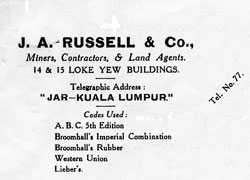
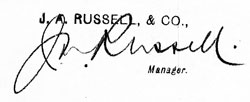
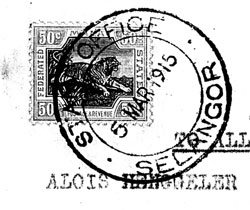
J. A. Russell (Chop Thai Ying) In 1904, at the age of 22, Archie set up his own company called J.A. Russell. He acquired tin mines, and became a manager of other companies, he also either employed or collaborated with his four brothers. Archie's mines brought in profits that he invested in property, and the shares of other companies. He took up contracting mainly in tendering and securing work on the formation of new roads. His setting up of J. A. Russell coincided with his eldest brother George becoming the Manager of the Federated Engineering Company. Archie was a large shareholder in it and later became a director. The Malay Mail in March 1905 reports: "Ipoh Friday. Mr. J. Russell of the Fed. Eng. Co., Kuala Lumpur, is paying Ipoh a visit."
Tin Mining and Construction. In 1905 he sent Don to study mining at School of Mines in Colorado U.S.A. with the object of joining the firm after his training. In December 1905 Archie was present at a meeting of the Malay States Mining Association. Loke Yew, the leading miner in the State, had chaired its meetings and supported this group of miners financially for some time. It was first mentioned in the Press in 1898. The miner’s concerns in the past had been the shortage of labour; their workforce often absconded and preferred to mine for themselves, the premium on mining land, and the tax on tin, timber restrictions, and the price of opium. (There being no income tax, the Government used taxes on opium to pay for infrastructure projects like transport and installing electricity in Kuala Lumpur.) The December meeting was concerned with lack of fuel and labour shortages. Miners were being given high fines for using protected timber for fuel. There were not enough Europeans to identify which timber was protected, and Archie suggested that specimens of prohibited timbers be provided so that they could be correctly identified. They also discussed the possibility of importing coal from Calcutta. Archie suggested a Government commission to take evidence on the subject. He also suggested that there should be more attempts to collect the dues of the association that should be based on acreage, as in Perak. The group also decided to write to the Government about rules on numbers of labourers to be employed on mines. The condition of mining leases at the time proscribed the total workforce linked to the acreage; and did not allow for the effect of the use of labour saving devices.
The Malay Mail of July 1906 reported a visit by Archie to Kelantan to look at a tin mine. A document in the National Archives of Malaysia shows him applying for a prospecting licence for 6 months over 400 acres of land in Pertak Mukim in August "Mr. Russell has lately obtained 50 acres in the Chel valley and also a block of two acres at Rasa which has just been surveyed”. These licences have details of the total holdings of the applicant: “Return of Lessees’ Land and Labour Force: 26 acres in Ulu Langat, 38 acres in Kuala Lumpur with a total of 219 coolies.” In October of the same year the archives show his successful application to the Resident for 15 acres of mining land in Ulu Klang. “Applicant holds 55 acres with 219 coolies in this district”. Archie also appears as a receiver in a notice in September over mining property belonging to Chop “Li Wo”. In November of 1906 there was the official opening of the hydraulic installation at the Serendah mine that belonged to Loke Yew and Chow Thye. J.A. Russell became the Managing Agents for the Serendah Hydraulic Tin Mining Co. which sold its first shares in December. Archie became a shareholder. In November the Russell family: Archie, George, Phil. and their father John, attended a ball for the King's birthday. According to Don it was in this year that youngest brother Bob came out from England to join the firm of J. A. Russell.
In June 1907 the Federated Engineering Company won the contract for the erection of a steel bridge over the river at Klang. This contract was valued at $260,000 and was one of the largest in the Federated Malay States ever given to a private firm. The construction work commenced on 27 July 1907. At the time it was the largest bridge in the Malay Peninsula. In July 1907 Archie and George were members of a group of 22 European merchants proposing to set up a Selangor Chamber of Commerce. In August Archie applied for 5 acres of mining land at Sungei Puron, Semenyih. “ Mr. Russell owns in this district 100 acres with 103 coolies.” In October he applied for a prospecting licence on 592 acres of land in Petaling. “Mr. Russell is registered as holder of 159 acres on which there are employed 220 coolies… he has one or two other applications under consideration including one for a prospecting licence over 800 acres lying between Kopong and Damansara.”
In January 1908 he was acting for the estate of a tin miner called Khoo Khye Cheah. In February the Federated Engineering Company won the contract for the extension of Central Market in Kuala Lumpur. Also in February Archie attended the first shareholders meeting of the Serendah Hydraulic Tin Mining Company, and the first annual meeting of the Selangor Chamber of Commerce with his brother George in March. In June he acquired two more mining licences of 5 acres of land at Ulu Sungei Purun in Semenyih and another 5 acres in same locality, and another 112 acres in July at Batu Makim: “Mr. Russell already owns 230 acres of mining land, with 155 coolies working it.” In 1908 the Federated Engineering Company had their tender accepted for the rebuilding of the bridge over the Gobak river in Kuala Lumpur. On 9 June the Bridge at Klang was completed, 203 days ahead of the completion date. The newspapers in September reported that the Federated Engineering Company was widening the Java Street Bridge in Kuala Lumpur as well as the Gombak Bridge. On 15 September the bridge at Klang was officially opened with great ceremony, and named the Belfield Bridge. The Federated Engineering Company had also acquired the contract for the erection of ironwork for the bridge at Kampong Atap and “a cooly dept at Port Swettenham”. As J. A. Russell, Archie had the contract to build the earthwork construction on the first section of the extension of the Damansara Valley Road. In October the High Commissioner approved an unprecedented grant of $5,000 to the Federated Engineering Company for completing the Klang Bridge ahead of schedule. A notice in the Malay Mail in November suggests that the Federated Engineering Company went into liquidation in Singapore but continued in Kuala Lumpur. In December the Federated Engineering Company had it’s contract for the construction of the Service Reservoir at Weld’s Hill accepted by the Government. George insisted on importing their own cement, instead of using that from the States Stores, in order to ensure the ultimate quality of the structure. Don Russell reported that it was in 1908 that Archie interested himself in the new rubber industry.
1909 In February of 1909 Archie attended the A.G.M. of the Serendah Hydraulic Tin Mining Co. Ltd. The mine had a deceased output. The papers record Archie returning from Hong Kong in May. Government Gazettes from March to July show that the Federated Engineering Company had won contracts for the transport of cast iron pipes from Brickfields Road to the Kuala Lumpur waterworks extension, the erection of a Storage Battery for electric light in Kuala Lumpur, to supply the Stores of the P.W.D. with “metals and engineers’ stores and coal tar, the extension of Gombak Embankment, a strong room for Selangor regalia, and the laying of water supply, including supply of piping and material in Kuala Langat . J. A. Russell had the contract for the construction of a concrete wall at the filter beds of the Impounding Reservoir, Ampang. In September Archie and Phil won the contract for the superstructure of the new railway station at Kuala Lumpur. The work was ongoing at the time of these pictures and was completed by August 1910.
PART ONE
1882-1921
1917 Committees.
The question of labour shortages for rubber estates continued to be an issue with the Malayan Tin and Rubber journal reporting in January that they had information from “Mr. J. A. Russell, a well known authority on Chinese affairs.” It is suggested that the managers of estates import a specific number of Chinese for three years. The proportion of Chinese working in mines to those in plantations was 4 to 1.
In early January the Malay Mail reported that the first batch of Japanese labourers for Malayan Collieries had arrived. There was also a problem with the European workforce with many leaving to join up, including Mr. R. J. Falgar of J. A. Russell and Co. who had a commission in the Indian Army reserve.
On 2nd January 1917 Archie applied to renew lease No. 790 of land at Ampang Mukim. The evidence of the amount of land that Archie leased for mining at this period can be seen in a document dated 10 January 1917. It lists 47 pieces of mining land with the labour force employed on it.
See left and below.Documents from National Archives of Malaysia
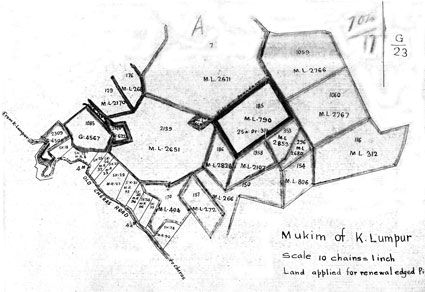
In May Archie chaired the Selangor Branch committee meeting of the F.M.S. Chamber of Commerce. Among the 11 items considered were, the damage caused by the floods in K.L., delays in the receipt of telegrams from Singapore, restrictions on rubber exports, shortages of food, the decline in tin output due to large numbers of coolies leaving the mines for rubber estates, a suggestion for a bureau of statistics, and rubber duty being based on London prices when Singapore was now the principal rubber market in the world. Archie signed the minutes. In June he was listed as giving $50 to the Smokes for Soldiers Fund organised by The Straits Times. Also in June he again chaired the monthly meeting of the Selangor Branch Committee of the Chamber of Commerce. The meeting reported that Archie was part of a deputation to the Chief Secretary to discuss the new government restrictions on the importing of motorcars. (See panel right.) The other matters discussed included the floods, the water rates in K.L., and the import and export returns. Archie noted that the removal of car tyres from articles that are prohibited to be imported was due to their deputation. The July meeting of the same committee argued for the river to be improved to prevent the floods, protested against government intentions to reduce the amount of time goods spend in bonded warehouses, discussed the lower output of tin, and raising subscriptions towards the war effort. Archie would be one of the delegates to the F.M.S. Chamber of Commerce meeting at Ipoh. In July he was elected Vice President of the F. M. S. Chamber of Commerce.
In August there was a fire at Malayan Collieries. He chaired the September meeting of the Selangor Branch Committee of the Chamber of Commerce. They discussed the government’s reduction in train services, the proposed adoption of the metric system for goods on the railway, the government’s continued insistence on rubber duty being based on London prices, the decline in output of tin, increased rates for handcarts, and the increase in rates by steamers carrying rice which has increased the cost of living. They suggested that Government might employ large steamers to bring cargoes of rice from Siam and Bangkok. They also discussed the publishing of the minutes of their meetings in the press. Also in July he was present at the Selangor Miners’ Association Extraordinary General Meeting where they agreed to contribute 2% of tin ore sold in August to the sailors day fund to provide relief for sailors disabled or dependents of those killed in action “In discussion Mr. J. A. Russell further amended that 2% on the proceeds should be deducted by tin ore buyers from all sellers, the tin ore buyers being requested by the miners to do this for them. This was passed by 5 to 2”. He was also asked to serve on the Sub committee.
Archie chaired the October meeting of the Selangor Branch Committee of the Chamber of Commerce, which discussed the alteration to train services, the duty on rubber, the lower output of tin, and the increase in freights by steamers. The meeting decided to approach the Government through the food control committee with a proposal that local steamships be requisitioned to convey rice or to charter some of the enemy owned steamers interned in Siam. The lack of small change available in the local currency and the duty on exported liquors are also discussed.
On 10 October he chaired the fourth annual meeting of Malayan Collieries. Work was being held up by drill equipment ordered from the U.K. being refused an export licences due to the war. They may have to go to America for a deep boring set with its operators. The final meeting of the year for the Selangor Branch Committee of the Chamber of Commerce took place on 12th December, again chaired by Archie. The same issues previously discussed occurred including train service alterations, the duty on rubber, high freights on rice, floods in K.L., and the new companies enactment. They decided to ask the Government to delay its introduction due to extra Europeans needed for the extra paperwork. Mr. Nutt resigned and it was decided to give him a farewell dinner on 4 January, the issue of foreign control of British Companies, and scarcity of coinage were also items on the agenda. Archie signed the minutes.
The F.M.S. annual department report for 1917 showed the output of coal for Malayan Collieries for the year was 155,279 tons, but noted the inability to get the plant which has been ordered meant that the North seam had been compelled to be worked open cast. There was a shortage of labour, miners preferring the lower pay but less arduous labour on tin mines or rubber plantations. It noted the investigations into material for hydraulic filling and the use of smoke helmets when combating fires.
The Selangor Branch represented by Messrs. J. A. Russell Chairman, A.K.E. Hampshire, C.D. Mathewson, W.F. Nutt and D. F. Topham, Branch Committee members, interviewed the Chief Secretary at 11 am on Friday 15 June 1917 at K. Lumpur on the subject of the working of the restrictions recently imposed upon the importations into the F.M.S. of motor cars and accessories. The Chief Sec. informed the delegation that the rules on the subject which appeared in the ‘Straits Times’ of 13th June would apply to the F.M.S. He could not, however, say what would be held to be a reasonable number of cars. He was unable to say if a car imported for commercial purposes (that is to say, hiring) was an omnibus, but would refer the point for the High Commissioner’s decision Also the question as to what type of omnibus will be allowed to be imported. The Chief Secretary further informed the delegation that there would be no restrictions on the movement of cars between the Straits & F.M.S. Asked if motor tyres are considered accessories, it being pointed out that the Gazette notification which specially mentions Motor cars. Accessories. Tyres. appeared to imply they were not, the Chief Secretary promised to obtain the High Commissioner’s ruling on the point. Asked further if motor tyres are not considered to be accessories, are the restrictions imposed by the Commissioner of Trade and Customs in his letter of the 6th June to Messrs. Boustead, Hampshire and Co. Ltd. necessary, the C.S. stated that he was not aware the letter in question had been sent, and that he would cause inquiries to be made into the matter. The Chief Secretary stated that he was not aware that motor tyres were imported from Japan, and he would ascertain from the High Commissioner if importation of tyres from Japan would be permitted.”
Above: From the minutes of the meeting of the Selangor Branch Committee of the Chamber of Commerce. Wednesday 27th June 1917, document in the National Archives of Malaysia. (Part of a report of the Federated Malay States Chamber of Commerce Year book for 1917 printed in Singapore in 1918)
Once Archie reached the UK he realised how difficult it was to order supplies for Rawang. "The amount of work entailed at Home in connection with these orders is almost unbelievable. Days of interviews and weeks of interminable correspondence; consultation with manufacturers and our own consulting engineers, negotiations unending, all are required in order to obtain priority certificates of any practical value for the manufacture of our plant. Our trouble is that the class of plant which we ourselves want is also urgently required by the Home Government for the increased British coal output necessitated by the war. Although we are in constant cable and postal communication with our London agent Mr. Dykes, and also with our Consulting Engineers, until I myself went Home at the end of the year I had no idea of the amount of work occasioned by even the simplest orders".
The Straits Echo Mail Edition. 10th October 1917.
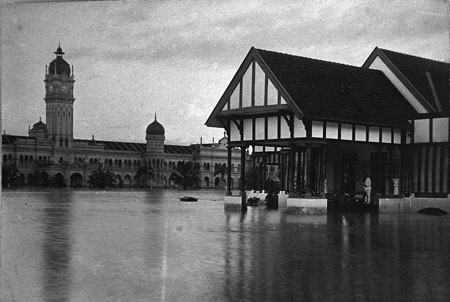
Right: Floods in K.L. cover "The Padang" parade ground, now Merdeka Square. The Selangor Club is on the right and the government offices at the back, now Bangunan Sultan Abdul Samad , originally occupied by the supreme court. It is now the Ministry of Information, Communications and Culture of Malaysia. Until the river channel was straightened out by major works in the 1920s K.L. was subject to flooding whenever there had been exceptionally heavy rain. 1926 was the most celebrated floods and the second worst were in 1913. It is not known which year this photograph was taken.
Photograph from Don Russell's album.
"Mr. Dykes was the staunchest supporter of and the most enthusiastic believer in the Company, (Malayan Collieries) amongst all its shareholders. When the former London owners, to whom the Government had given the concession, decided to get rid of it and offered it to several big London mining firms, including that of John Taylor and Sons, all of whom turned it down, and when Mr. Dykes wrote to the speaker advising him to come to London and to negotiate for the purchase, Mr. Dykes I am positive had but one single actuating motive: to benefit if he could, by opening up the coalfield, the country where he had spent so many years and in which he took such a disinterested interest. He could not bear to think that a deposit which he believed to be of such potential value for the future welfare of the F.M.S. should be suffered to lie in undeveloped neglect. I shall always consider it one of greatest compliments I have had paid to me that Mr. Dykes, when looking for someone to develop the place he had such an intense but single faith in, turned in his need to myself."
Archie speaking at the 5th A.G.M. of Malayan Collieries, reported in the Malay Mail, 30 August 1918
At some point early in 1918 Archie formed a partnership with a miner called Hong Guan over a mining concern in Trenagganu. It was in connection with obtaining rights over a tin concession which belonged to a Malay woman, either in Tungku Nar or Tungku Asar. Hong Guan became indebted to J. A. Russell and Co. by $23,000. Part of the debt was liquidated with the exception of $6,000. Hong Guan wrote a promissory note for $6,000. He transferred his rights in the Tek Seng kongsi. The arrangement was that he was to have the concession and Archie was to receive back $23,000. The note was not paid back on the due date. J. A Russell made several attempts to reclaim the money over the next two years.
The beginning of Malayan Matches.
"In 1918 the late Mr. P. Morely Parker, who was my then manager and held my power of attorney, conducted on my behalf with a Mr. Evance, whom we had engaged, several experiments on the possibilities of local match manufacture; in which work we were actively assisted by the F.M.S. Forest Department." J.A.R. letter 20th April 1921
Mr. Parker joined J. A. Russell & Co. in early 1918 as a technical and scientific advisor.
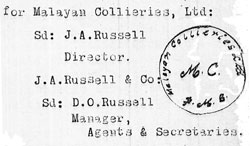
World War 1 “ In Kinta the prime mover of the fund raising effort was Alma Baker, who founded the Malayan Air Squadrons Fund, better known as the Baker Air Fleet Fund. He persuaded the Chambers of Mines and Eu Tong Sen to pledge one plane each as the first subscribers. By the end of the war, Baker had raised more than £200,000 to purchase 41 Australian and 53 Malayan Aeroplanes (including those named “The Alma Baker”, “The Chamber of Mines”, “Kinta” and so forth. He published a 200 page souvenir of the Malayan and Australian Battle Planes which included photographs of all the aircraft presented, together with a list of the major donors for each.” From :Kinta Valley: pioneering Malaysia's modern development By Salma Nasution Khoo, Abdur-Razzaq Lubis
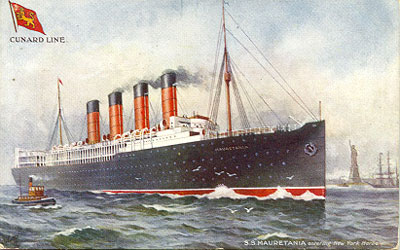
1919 A Year’s Absence.
There is little news of Archie in the local newspapers in 1919. He was out of the country for most of the year. Up to March he was in China, presumably working on business connected with China Minerals, or Eastern Tungsten, he then returned briefly to K.L. before sailing on the “Empress of Asia” with A. A. Henggeler and two members of the Henggeler family, whose final destination was Switzerland. This was the ship's first Pacific round trip after coming off war work. It had a full list of cabin passengers and 600 Chinese passengers in steerage. Among the cabin passengers were the British Ambassador to Tokyo, Canadian officers, soldiers returning from duty in Siberia, and other notables from Russia and Japan. The crew were pleased to be able to steam under lights at night, and the Captain reported a very smooth and pleasant trip all the way across. The ship was recorded as arriving on 14 April in Vancouver. Archie would probably have travelled to New York from here by train.
In America Archie may have spent time looking at coal mines or buying more equipment for Malayan Collieries. He arrived in Liverpool from New York on the Mauretania on 23 May. He left England in November, six months later, arriving back in the F.M.S. on 20 December.
Malayan Matches
In Archie’s absence the work of J. A. Russell continued. He had left his manager Mr. P. Morley Parker in charge, with power of attorney for him. Mr. Evance had located some German match making machinery in India, and negotiated the sale for J. A Russell. In May they wrote to the Government with a list of the machinery and a request to import it. Mr. Parker had a number of interviews with the Government. In May the Under Secretary wrote about royalty being charged on coal used by the new match company because the factory will be based near Malayan Collieries. In August there was news of Malayan Matches imminent share issue. The prospectus named Archie as a director. However Archie had had little to do with it, as is indicated in a letter he wrote two years later: “Towards the end of 1919 I received a cable in London telling me that a match company had been floated of which I had been appointed Chairman of Directors and asking me to engage the services of a Mr. E. L. Bell, a well-known match expert then in London. Owing to my having been since leaving the F.M.S. continually travelling, this was practically the first intimation I had received that the affairs in connection with match manufacture in the F.M.S. were so far advanced. I engaged the services of Mr. E. L. Bell for the new Company, and on his advice sent him to Germany to interview the makers of the plant Messrs. Rollers of Berlin, and to obtain an erector for their Simplex machine which apparently, contrary to its name, can only be erected by trained erectors. Mr. Bell through them engaged Mr. Gosswein. Mr. Bell on his return to London made further arrangements to engage a match mechanical engineer to carry out the erection of the other and simpler machines, and to run the whole plant on the completion of the factory. Mr Simons was eventually obtained for this latter work…. You will thus see that I had little to do with the floatation of the Company, and did not have any interviews with leading Government officials.." From letter 20th April 1921
Mr. Parker and Mr. Evance spent about 6 months dismantling the match machinery in India, Mr. Evance was offered the job as factory manager during that time. He arrived in K.L at the end of the year.
The F.M.S. Federal Council at a meeting in October 1919 was directed by the Home Government to pass the “Former Enemy Aliens Admission Enactment” which: “excludes from the F.M.S. for a period of three years everybody who is a subject or citizen of a State or country with which Britain was at war in 1918”. Admission would only be permitted on the terms of licence. Mr. Bell while in London succeeded in getting permission from the Home Government for Mr. Gosswein, who was considered an enemy alien, to travel to the F.M.S. in order to erect the Simplex machine. In November The Federal Council of the F.M.S. considered putting a tax on imported matches to encourage local industry.
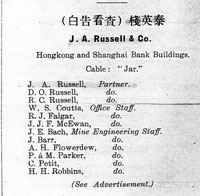
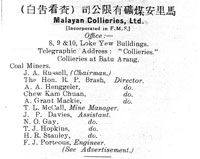
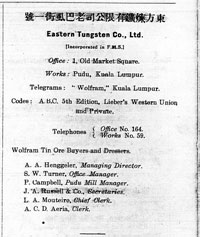
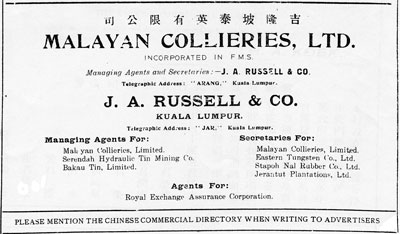


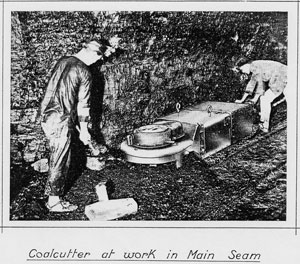
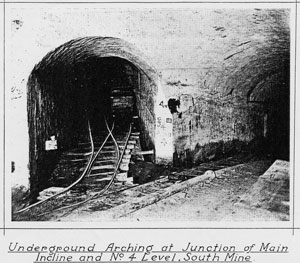
Tin
The Selangor Miners Association report in March noted the crisis in tin after the end of the war but the price had risen steadily since April. The high price of food had led the Government to legislate for the planting of one acre of food per coolie on mines. Most miners were planting sweet potatoes. Labour was scarce with high wages. At the A.G.M. the fuel problem was discussed with more criticism of the Railways for having too few trucks. The trustees of Loke Yes estate had given $50,000 for constructing a Chinese Town hall with accommodation for the Association in the new building.
The July paper reported the closure of Archie’s mine at Sintok in North Kedah. It appears that the streams of tin ore there were exhausted. The mine’s closure badly affected the local economy.
On 5 November the 3rd Annual Meeting of Eastern Tungsten was held, also in the new offices. Mr. Henggeler presiding, reported on his and Archie’s attempts in London at the Ministry of Munitions to compensate the firm for stopping their shipments of ore during the war. Because Eastern Tungsten was not actually mining itself, it did not come under the compensation scheme. They had consulted City lawyers, but because no agreement with the Government had been in writing it was not worth suing. Mr. Henggeler was finally able to get a lump sum out of the Ministry but this was only a fifth of the amount they ought to have received. In addition the Ministry had sold off its stocks of Tungsten at a very low price causing some American firms to go into liquidation. Eastern Tungsten had considered suing buyers who had defaulted in America and had consulted American lawyers, but decided this legal action was not worth it either. There was a general slump in the trade of Tungsten. The directors had decided not to open the Prai Mills, the machinery was being transferred to Padu, and the plant and buildings sold off. The directors were voted a sum of $2,000. Archie was re elected to a seat on the board and thanked for his services for the company while he was in Europe.
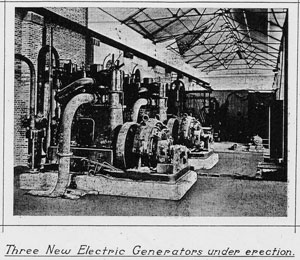
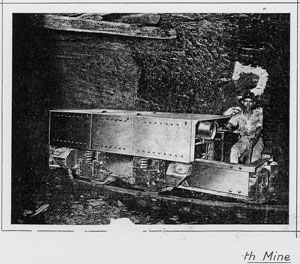
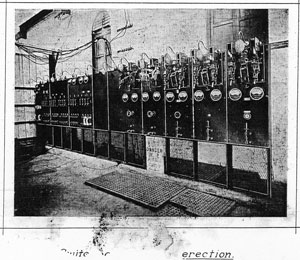
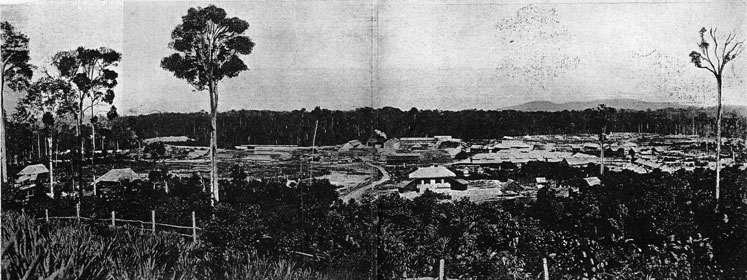
Malayan Matches
The match machine parts were months in transit from India, some of it arriving in the F.M.S. in March at the same time as Mr. Parker returned. Mr. G.C. Evance resigned in April. He said later it was because he was asked to erect the machines on ground that had not been levelled. J. A Russell said it was because he was drunk. In June Mr. Bell arrived, and got a permit for Mr. Gosswein the German match machinery erector to enter the country. Mr. Gosswein was engaged on 2 July. Before all the plant had arrived Mr. Parker died in August. There were 68 cases of machine parts missing, and Mr. Bell went to Australia in August to see if he could buy the missing parts. Mr. Evance thought that it was unlikely that they could be missing and that it was probably because the machine was too complex for the non-expert to understand. In October the tax authorities questioned whether the match factory was to be built on Malayan Collieries’ land. They considered it an unauthorised building. Mr. H.H. Robbins for Malayan Collieries replied that building it there was easier than revoking the lease on part of the Forest Reserve, and convenient for access to the railway, and that Government officials had agreed to this. The authorities disagree and when Mr. Gosswein arrived on 30 December he was refused entry to the country. Mr. Simons who had been engaged to run the plant after it was erected was cabled, and Mr. Gosswein paid to remain in Java while the Company appealed for him to be allowed to enter the F.M.S. With no machinery working the Company was running out of money.

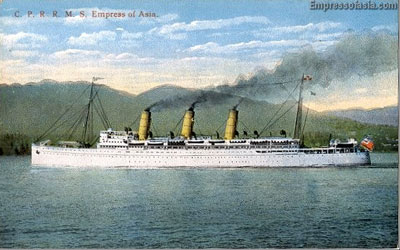
1920 Staff. J. A Russell and Co., lost four members of staff, two from the office and two engineers.
J. A. Russell & Co.were listed in the Chinese Commercial Directory for 1920. The partners were Archie, Don and Bob; although Bob was not listed as a partner in the personal pages for Kuala Lumpur in the same directory, and Archie questioned in 1924 said that Bob was not a partner. Of the staff listed see right, the papers reported on 14 February 1920, that "Captain Richard Falgar, M.B.E., has now been promoted to the rank of Major and is in charge of No. 2 Indian base Depot at Magil in Mesopotamia. The military M.B.E. was conferred upon him in 1918 and he has been mentioned three times in dispatches since then. Major Falgar was formerly connected with the firms of T. D. Reid and Co. of Penang and J. A. Russell and Co. of Kuala Lumpur. " On 25 February 1920: " Mr. A. H. Flowerdew M. Inst. M.M., F.G.S. has left the firm of J. A. Russell and Co. and has started a practice in K.L. as consulting Mining engineer." The Straits Times, 22 April 1920, reported: "The death took place at the General Hospital, Singapore, on Tuesday of Mr. J.J.F. McEwan of Messrs. J. A. Russell and Co., K.L. Mr. McEwan went to K.L. some 12 years ago to join the firm of G. E. Cobb and Co., when he left to take up an appointment with Messrs J. A. Russell and Co." 23 April 1920:" Mr. J. J .F. McEwan , of Messrs. J. A. Russell, K.L., died in Singapore on Tuesday and his body was taken to K.L. by train to be buried. Mr. McEwan came out to Cobb and Co., joining Messrs. Russell in 1917. He leaves a wife, for whom much sympathy is felt. Father Renard went up from Malacca to conduct the funeral" The Straits Times, on 6 August 1920 reported that: " Mr. Philip Morley Parker, of Messrs. J. A. Russell and Co., Kuala Lumpur, died at Kuala Lumpur on Wednesday after a short illness. He had for some time been suffering from heart affection, and this was the cause of his death. Mr. Parker arrived in British Malaya about two and half years ago to join the staff of Messrs. J. A. Russell and Co. as technical and scientific advisor. Latterly he had been appointed manager of the firm."
The advertisement for J. A Russell in the same directory lists the firm as Managing Agents for Malayan Collieries, Serendah Hydraulic Tin Mining Co. and Baku Tin Limited and Secretaries for Malayan Collieries, Eastern Tungsten Co. Ltd., Stapoh Nal Rubber Co. Ltd., and Jerantut Plantations Ltd. They are also agents for the Royal Exchange Assurance Corporation.
Sugar Cultivation
In March Bob wrote to the Land office for Kuala Selangor applying for 20,000 acres in the Selangar-Bernam river area for sugar cultivation. He explained that J. A. Russell planned to spend about 7 to 8 million dollars on a four year programme to grow and process sugar cane. The Land Office referred it to the Resident. The Resident referred it to the Chief Secretary. In May the Secretary to the Resident wrote back with terms. J.A. Russell then asked for 50,000 acres in Tanjong Karang. On 2 June Archie had a personal meeting with the Resident about the application and two days later wrote a letter with more details about the plan. The Land Office recommended it should go ahead. The Government was concerned about the trees and the effects of drainage and arranged for J. G. Watson of the Forest Department to make an exploration of the area. He travelled with Mr. Hastings the employee of J. A. Russell into the jungle on 22 July. His report details Mr. Hastings enthusiasm and his own misery describing the area as “the most unpleasant, and from a forest point of view, the most worthless of any that I have ever visited, and more than justifies the remarks of all who have had the misfortune to have to visit it. “ In July the Government decided to put the whole question of sugar planting to a committee. The Resident held a conference in November. Archie was informed that no decision could be made at the present time and wrote to the Resident on 10 November asking if he may take the matter to the High Commissioner. He was directed to take it to Acting Chief Secretary. Nothing more was decided until March 1921 a year after the original application. In his letter the following year Archie wrote:” We had two men working on the matter for over 6 months, cut rentises and examined soil, gathered data as to cane growing in this country, analysed native cane, made arrangements for an irrigation engineer from Egypt and for expert sugar planters and chemists, obtained quotations for plant, in fact devoted months of time, energy, salaries and expenses to the affair.”
Read the full correspondence here.
Rubber
In January 1920 the Singapore Free Press noted that J.A. Russell and Co. had bought the Sungei Tua Estate.
In March the tenth A.G.M. of New Serendah Rubber was held. Bob Russell was present. This company was doing well and had a final dividend of 2 ½ %. Don Russell was re-elected as a director.
Archie presided over the annual general meeting of the Amalgamated Malay Rubber Company in early October. He announced there would be no dividend, and that extensions to the plantation had been stopped. He was re elected as a director.
At the end of December Archie took part in the special committee formed because of the crisis in the rubber market. The committee wanted the Government to make legal recommendations to prevent more rubber being put on the market. They outlined a 13-point plan with 9 additional recommendations, which did not require legislation, and elected a sub committee to elaborate the recommendations into a concrete scheme to be presented to Government.
W. R. Loxley and Co.
In 1919 the Agents for China Minerals Ltd. were W.R. Loxley and Co. in Hong Kong. Archie and Don bought W.R. Loxley and Co. in 1919.
W. R. Loxley established the Company in 1872. J. M. Beattie bought it possibly in 1900. Later two brothers: A. Beattie and M. P. Beattie joined the firm. The business was sold to J. A. Russell and D. O. Russell in 1920 and under the agreement A. Beattie became manager of the London branch.
The Annual Report for Malayan Collieries in June 1920 reported that it's London Agents were now W.R. Loxley and Co, 34, Lime Street, E.C.3. On 25 March Archie gave power of attorney to Adriaan van der Harst to act on behalf of W. R. Loxley & Company. The Straits Times of 21 April 1920, reported that “ A.A. van der Harst, who spent many years of his business life in Singapore before leaving, about 10 months ago to take an appointment in Hong Kong, has returned and is about to open a local branch of the firm W. R. Loxley and Co., the well known Hongkong merchants”.
Malayan Collieries
On the 5 and 6 of May a serious fire in the north half of the mine at Malayan Collieries reduced output by 50 % There had been previous fires but this blocked a main passage way.
On 10 June a circular letter to the customers of Malayan Collieries was published in the Malay Mail explaining that the problems with supplies was not due to the colliery but to the F.M.S. Railway’s shortage of coal wagons. The Malay Mail had asked the manager of the railways, Mr. P. A. Anthony to respond and he made a statement that was published. In it he complained that he wanted more coal from the colliery to run the railway that was currently running on wood, one truck of coal being equivalent to two trucks of wood, but that the colliery was unable to supply it. He gave the paper a copy of a letter written to J. A. Russell and Co. on 16 June saying that he has always been prepared to take more coal but that they had been unable to supply it, and criticising the colliery manager Mr. McCall.
Malayan Collieries seventh annual report was published at the end of June. Coal sales were 200.705 tons for the financial year. A dividend of 25 % was to be paid for the year. Nine photographs of the mine accompanied the mine manager’s detailed report. (See left)
A response to Mr. Anthony’s criticism of the Collieries was published in July. Dated 1 July, it is not known if Archie wrote this, but it has a fairly stern politeness and detail that seems to be his style. It noted that it was not a good idea to publish private correspondence in the papers, maintained they were indebted to Mr. Anthony, said that they had examined the evidence in detail in their own files, supported their own manager, and then refuted all the criticisms one by one and put the blame firmly back on the railway for having insufficient trucks.
7th A.GM.
On 15 October Archie chaired the seventh A.G.M. of Malayan Collieries. Archie now called the Company “a fair-sized concern and one of considerable importance to the economic life of the Federated Malay States”. He noted that the mine will get bigger and safer and output would increase. He mentioned that the Company may look for other coal properties, which might have coal, which can be stored. In reply to a question he said: “from time to time, outside properties had been offered to the Company which it had inspected with the idea primarily of extending its market and secondly that it might perhaps find a coal which by mixing with Rawang would make the latter more suitable for bunkering. The second reason was by no means a vital matter for the Company as briquetting its own coal would answer the same purpose. The briquetting plant should be in operation towards the end of the present financial year.” There was discussion of the contract that the Collieries had the Railway, which was felt to be unfair to the Company.
Archie heard news of the Borneo expedition at the end of October. Samples of coal were sent for analysis. On 2 November Archie presided over an extraordinary general meeting of Malayan Collieries held in the new offices of J. A. Russell in the Honkong and Shanghai Bank in Market Square. He asked shareholders to agree to double the capital from $2,000,000 to $4,000,000. This was passed.
The Borneo expedition returned on 6 November, Mr. Hastings spoke highly of the Pamoekan Bay mine. Mr. England had not visited the Seboekoe mine since he had very bad reports of it, but had made a good report of Pamoekan Bay.
On 18 November Archie bought the option on Pamoekan Bay for $600.000 in cash and $600.000 in shares in Malayan Collieries. On 23 November a board meeting of Malayan Collieries was convened and Mr. England was called in to speak to Mr. Mackie and Mr. Henggeler, the only two members of the board present, the other two being in England and China. Archie told the Board he was prepared to sell the option to Malayan Collieries for $600.000 in cash and 100,000 shares of $10 each in Malayan Collieries. The board agreed to buy it on his terms. Archie paid Hong Guan a percentage of his profits: 8,000 shares in Malayan Collieries. Both Archie and Hong Guan put some of their shares into the names of nominees.
Two years later these events were the basis of several court actions against Archie and J. A Russell.
Read the full story of how the mine was bought here.
Pamoekan Bay.
On 2 September 1920 H. H. Robbins for J.A Russell wrote a letter to Hong Guan, the miner who Archie had dealings with in 1918, reminding him that he still owed J. A. Russell money, and that unless the money was repaid they would take steps to recover it. On 5 September Hong Guan went to see Archie saying he could not repay his debt but could give him the opportunity to acquire an option over a coalmine at Poemoekan Bay in Borneo. Throughout September they negotiated over the deal, and agreed on 6 October. Malayan Collieries had just acquired an option over another coal mine at Seboekoe also in Borneo, Mr. England the Acting Mine Manager for Malayan Collieries was about to visit it with the assistance of Mr. Hastings. On the 11 October an expedition departed to visit both mines.

Sugar
On 29 March, a year after their original application, J. A. Russell was sent the Government’s terms for land on which they wanted to plant sugar. Archie wrote a letter to the Resident in April saying that under the present financial conditions they were no longer sure they could raise the capital. He said that at the time they were able to raise £2,000.000, and had done a lot of work on the project but now he feared that due to the Government's delay the opportunity had probably been lost forever.
Rubber
A lack of buyers led to a crisis in rubber production in 1921. Jerantut Plantations, Ltd., of which Archie was chairman, was wound up in March. The New Serendah had halved its production and did not declare a dividend. Kamasan Rubber had also halved its production and was making a monthly loss of $500. Archie was re elected as a director in April. A meeting held in December 1920, of which Archie was a member, had suggested the government legislate to reduce rubber production but the British Government had not agreed to this. In April 1921 the newspapers carried a report of the special committee’s detailed recommendations, which as well as suggesting a 50 % reduction in rubber production, called for the Government to create jobs for those put out of work, reduce the price of rice, and provide loans for producers who agree to cease tapping for 6 months. On 17 April. Archie was one of many representatives of the rubber growing industry who met to discuss what further efforts should be made to reduce production. They had produced statistics to send to the Chief Secretary of the F.M.S. that were printed in the papers on 5 May. They decided to appeal to the F.M.S. and Straits Settlements Government to legislate for a compulsory reduction in production.
Advisory Roles
An inquiry called the Trade Depression Commission was set up in August. Archie became one of its 11 members when Mr. J. H. M. Robson resigned. The first meeting was held on 2 September in the committee room at the Federal Secretariat. Meetings were not open to reporters; prominent merchants and miners were asked to give their views. A Railway Advisory Board was set up by the Government in October. Archie was one of 7 members. Its remit was to look at railway expansion, fares, expenses revenue etc. Members of the Board were given free passes for the railway. He was also on a committee to look at charitable schools in Malaya. ( Straits Times, 1 February 1933, Page 19)
Tin
Tin was also in a critical situation, with prices very low. In February Archie applied for a prospecting licence for 450 acres of land bordering the Kampar river. He was elected President of the Selangor Miners Association, a hugely popular move, especially since Malayan Collieries had just agreed to reduce the price of coal to the tin miners by 15 % during the tin slump.
Coal
News of the new Borneo Colliery appeared in the papers in January. Malayan Collieries bought a small steamer in China for use on the Borneo coast, and chartered boats to carry coal to Singapore. Commercial production was due to begin in March. In February a railway locomotive for the Batu Arang Collieries arrived at Port Swettenham. Mr. McCall found a new job in Nova Scotia. In August a recently resigned member of staff called Mr. Rostevor committed suicide in Ipoh. On 6 September, Mr. England sailed from Batoe Besar to Singapore and then to Home. Two new members of staff arrived: “Mr. McEwan goes to the Company's Batu Arang property, while Mr. Barratt in leaving shortly for the new coalfield which Malayan Collieries is opening in Borneo.” A circular informed shareholders that the final dividend was 10% and that the Company had changed its financial year and the A.G.M. was postponed until next year. The circular prompted Frederick C. Peck to write a letter to the Straits Times in November asking why the shares have lost 50 % of their value since the Borneo colliery was bought. This is just the start of Mr. Peck’s inquiries into Malayan Collieries.
Matches
The argument with the Government over the building of the match factory on Colliery land continued. It had originally been intended to build the factory in the forest reserve but that had proved too difficult. The Colliery offered to give up 30 acres of their land to Malayan Matches, as they needed to own the title themselves, in order to raise more funds. Interviews were sought with officials, who were still blocking the German match machinery expert from entering the country because they considered the factory was on unauthorised land. By the date of the first annual report, although the building was completed, and Mr. Simons from Bryant and Mays had put up all but the automatic German machine, no matches had been made and the money had run out. Money from J. A. Russell and Co. was used to keep the company going. Mr. Gosswein, the German expert was allowed into the country in June, but because he was only given a permit for three months, when he was offered a job in Europe he accepted it and left in September before the machinery was assembled. Mr. Bell was encouraged to resign in June and the management was taken over by J. A. Russell as the agents assisted by Mr. Simons the engineer in charge. By July the transfer of the 30 acres was agreed, but all the working capital was exhausted.
The death of his brother
In late August when Archie’s brother Phil needed to travel to Australia to recuperate after an operation, Archie told Phil's wife Hilda to send their two youngest children back to the U.K. and travel with Phil and their eldest daughter Anne. Hilda didn't want to split the family up, her youngest child was only 6 months old, but did as Archie told her. On 21 December Phil died in Australia.
Property. By September Archie’s house at Maxwell Road was nearly finished. It had cost about $60,000 to build to very high specifications. Archie offered to sell it to the Government for that amount but they were not interested.
Continued here:1922 -1933
Left: 80 and 78 Westminster Bridge Road, photographed in February 1950. Now demolished.
Permission for use agreed: City of London, London Metropolitan Archives.
The Office.
In 1921 the offices of J. A. Russell were shared with Malayan Collieries on the first floor of the Hongkong Bank. Sometimes Archie dictated his letters, sometimes he drafted them in his own handwriting. Carbon copies were taken, one on a white sheet and one on a yellow sheet. This yellow sheet was filed away either personally or by subject, and the white sheets were filed chronologically.
Tapioca
Mr. Dickinson was employed by Russell and Co. at the time in connection with their tapioca business and a clerk Keng Huat worked with Mr. Dickinson in the same room. Keng Huat came to the office with Mr. Dickinson sometime in August.
" What proportion of the paid-up capital of China Minerals did Eastern Tungsten put up?—I think about half. When did you buy Loxley and Co? —In 1919."
Archie's reply to questioning in the Peck v. Russell case reported in Malay Mail Wednesday, April 9, ps. 5 and 10 1924.
"Is there bunker coal used in the F.M.S.?—No. Nobody ever wants to store coal here?—Not for say longer than the Malayan Collieries coal can be stored. You really tell the court that mine owners do not want coal to bunker?—I say that it is not necessary for mine owners to have coal that would store longer than Malayan Collieries coal would store. To whom do you sell Malayan Collieries coal outside the F.M.S?—To the Brickworks in Singapore, Ice factory in Singapore, the Cold Storage in Singapore and the Tramways in Singapore. All of whom do not need a bunkering coal?—Yes."
Archie replying to questions during the Peck v. Russell case reported by Malay Mail Wednesday, April 9, 1924.
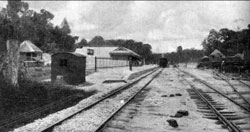
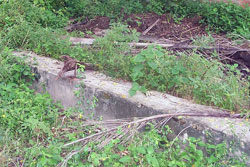
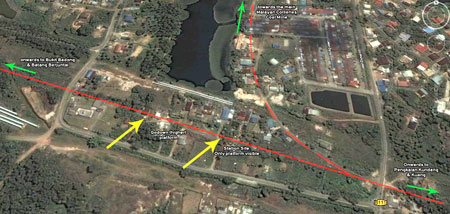
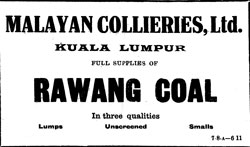
The following are approved for licenses as appraisers for Selangor for 1913. - …J. A. Russell, D.O. Russell…
The Singapore Free Press and Mercantile Advertiser, 21 January 1913, Page 6
